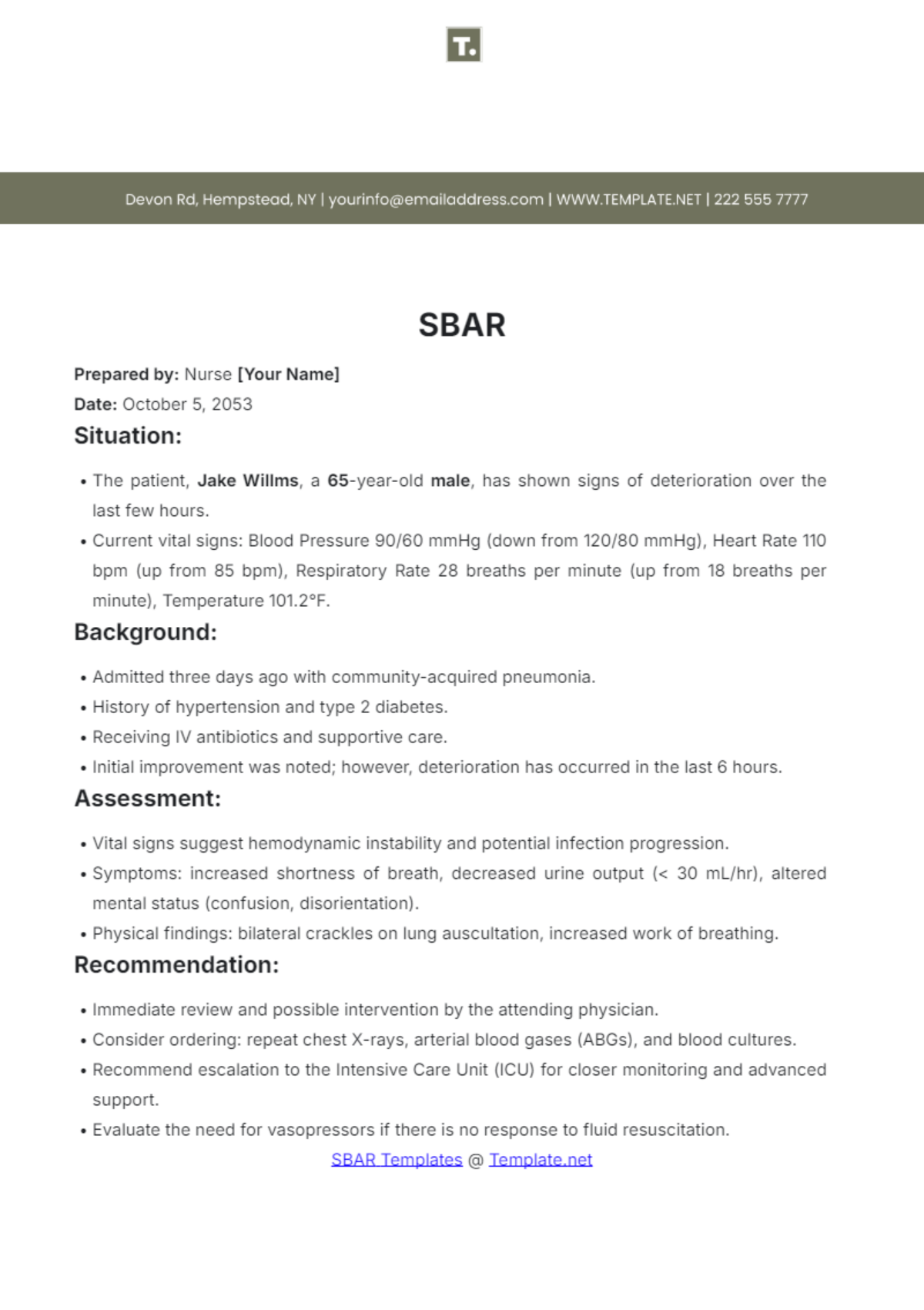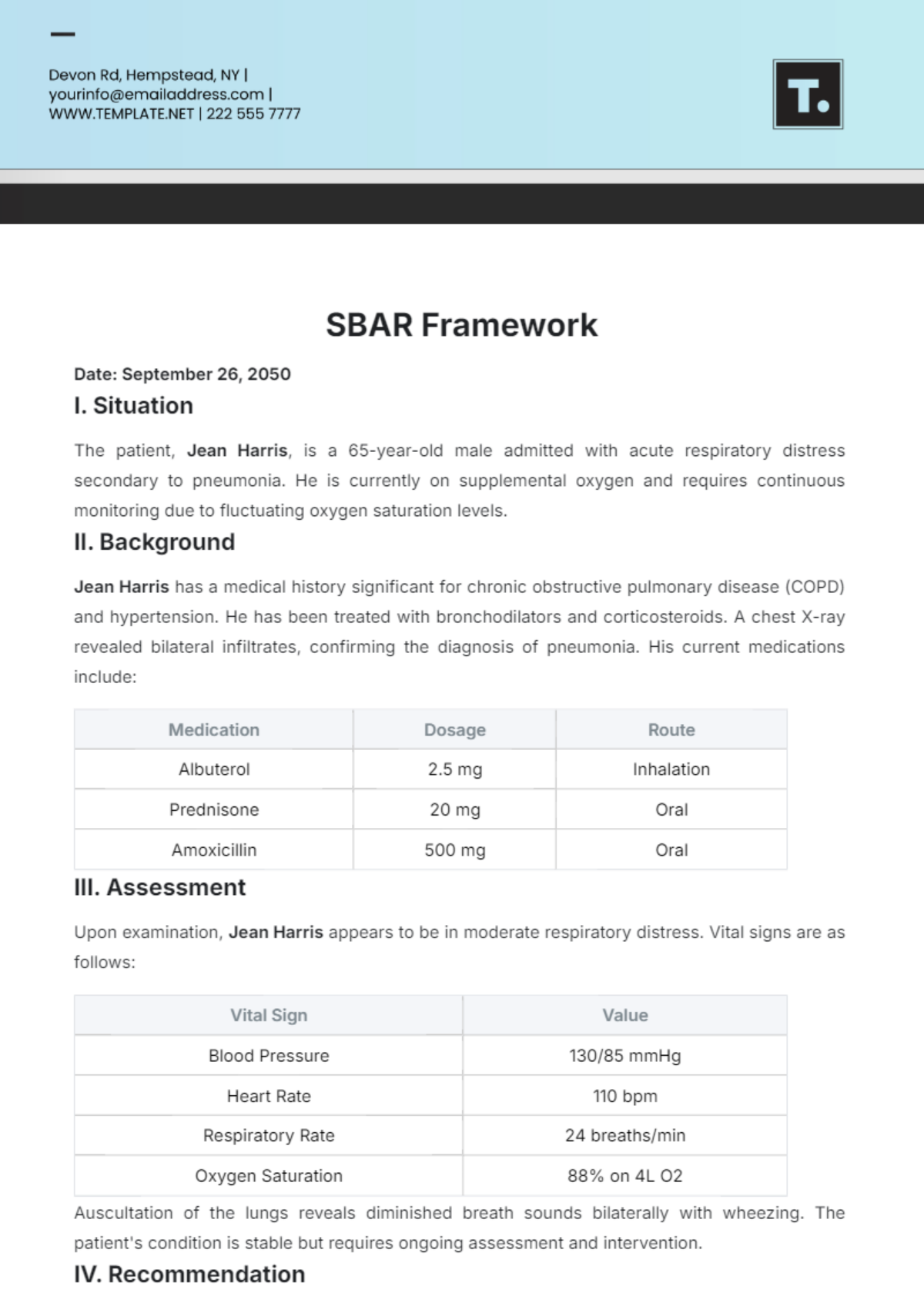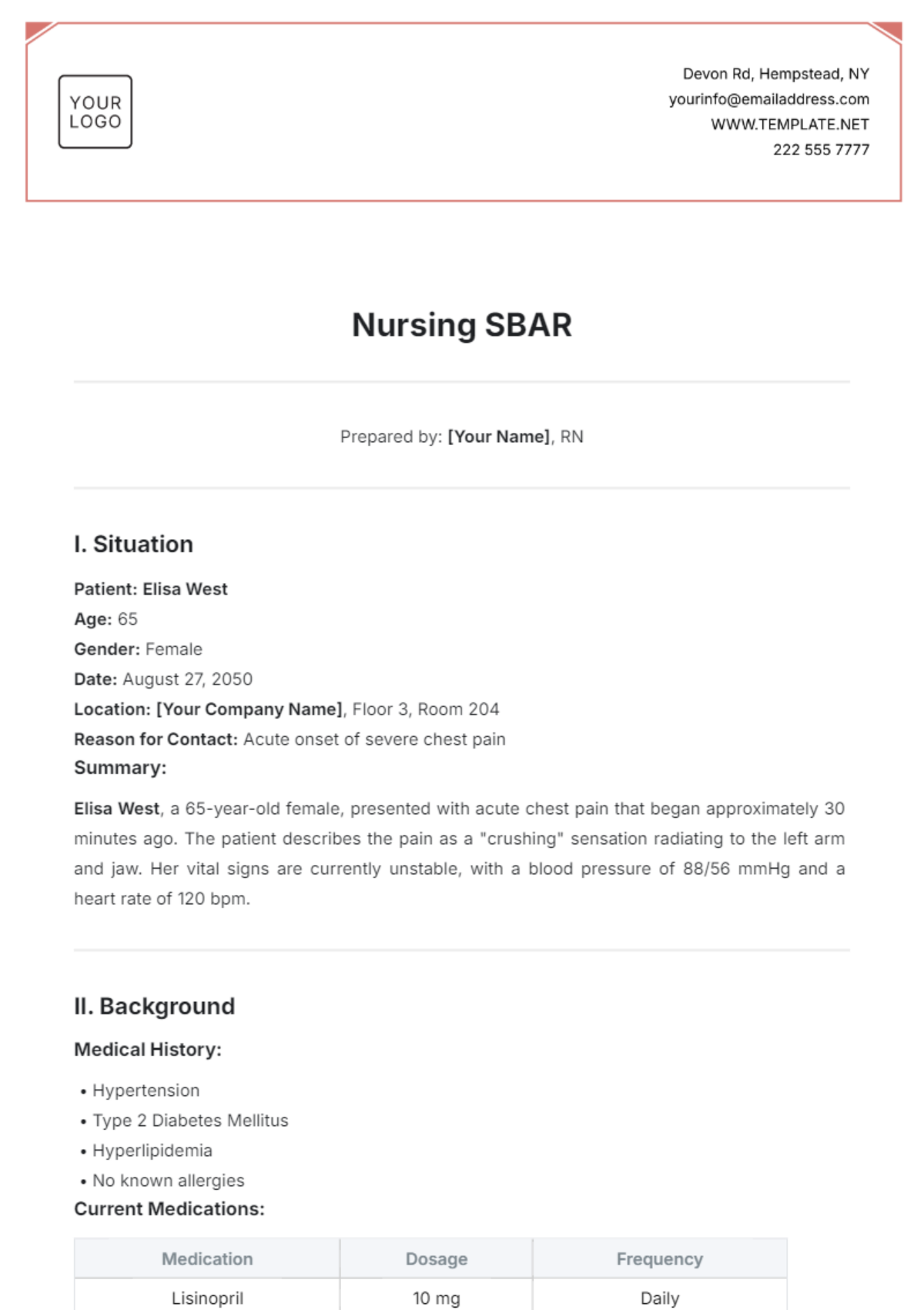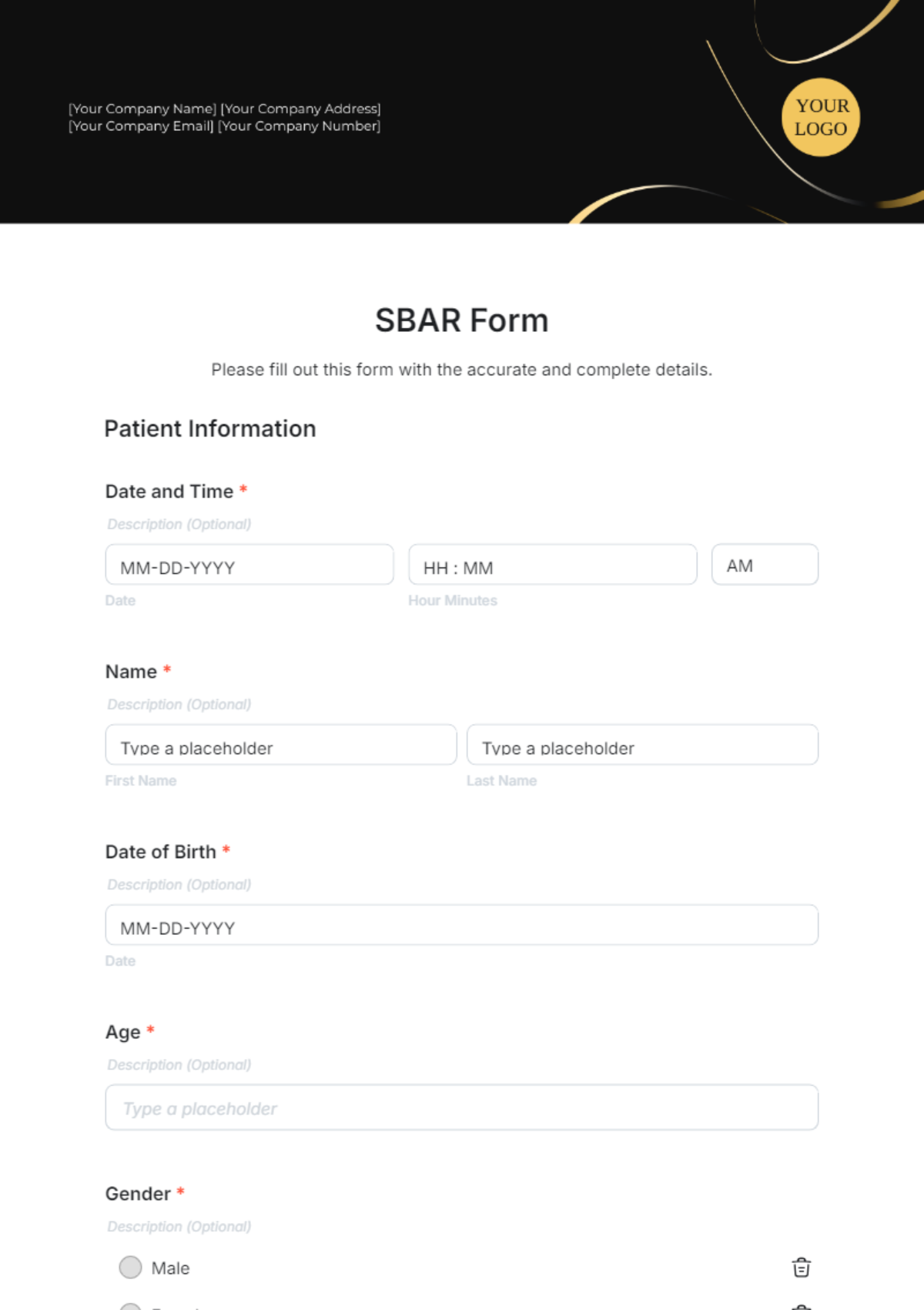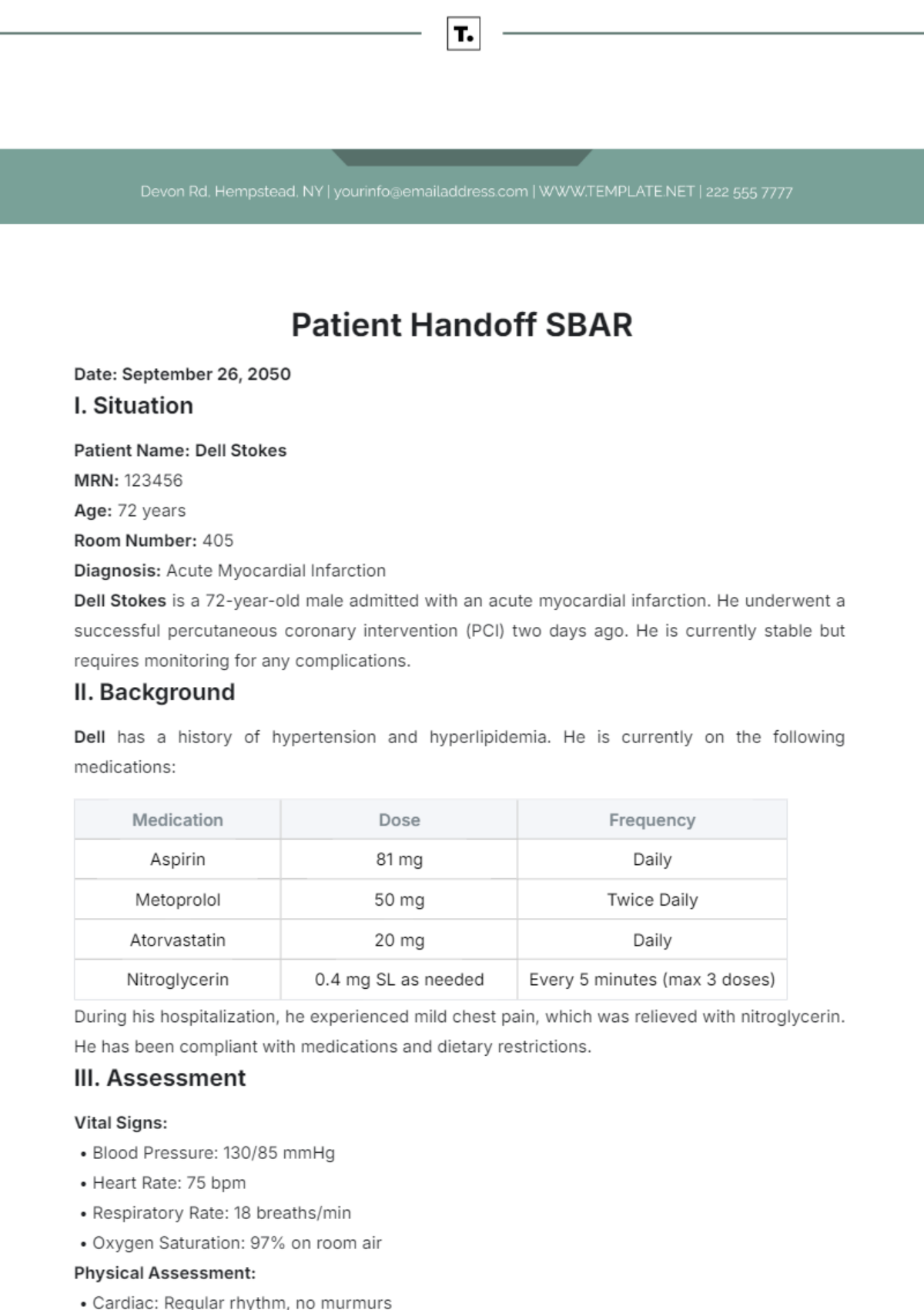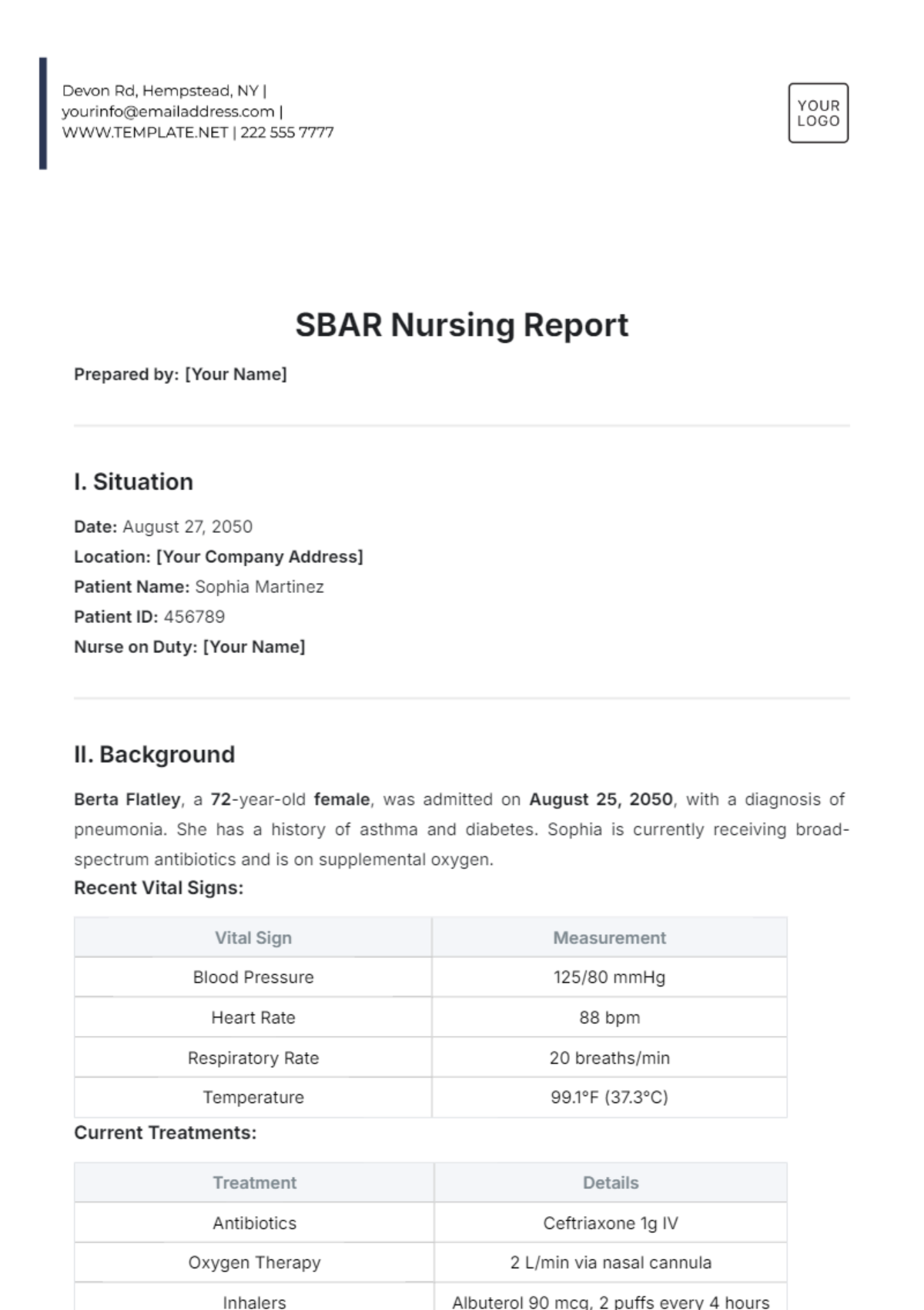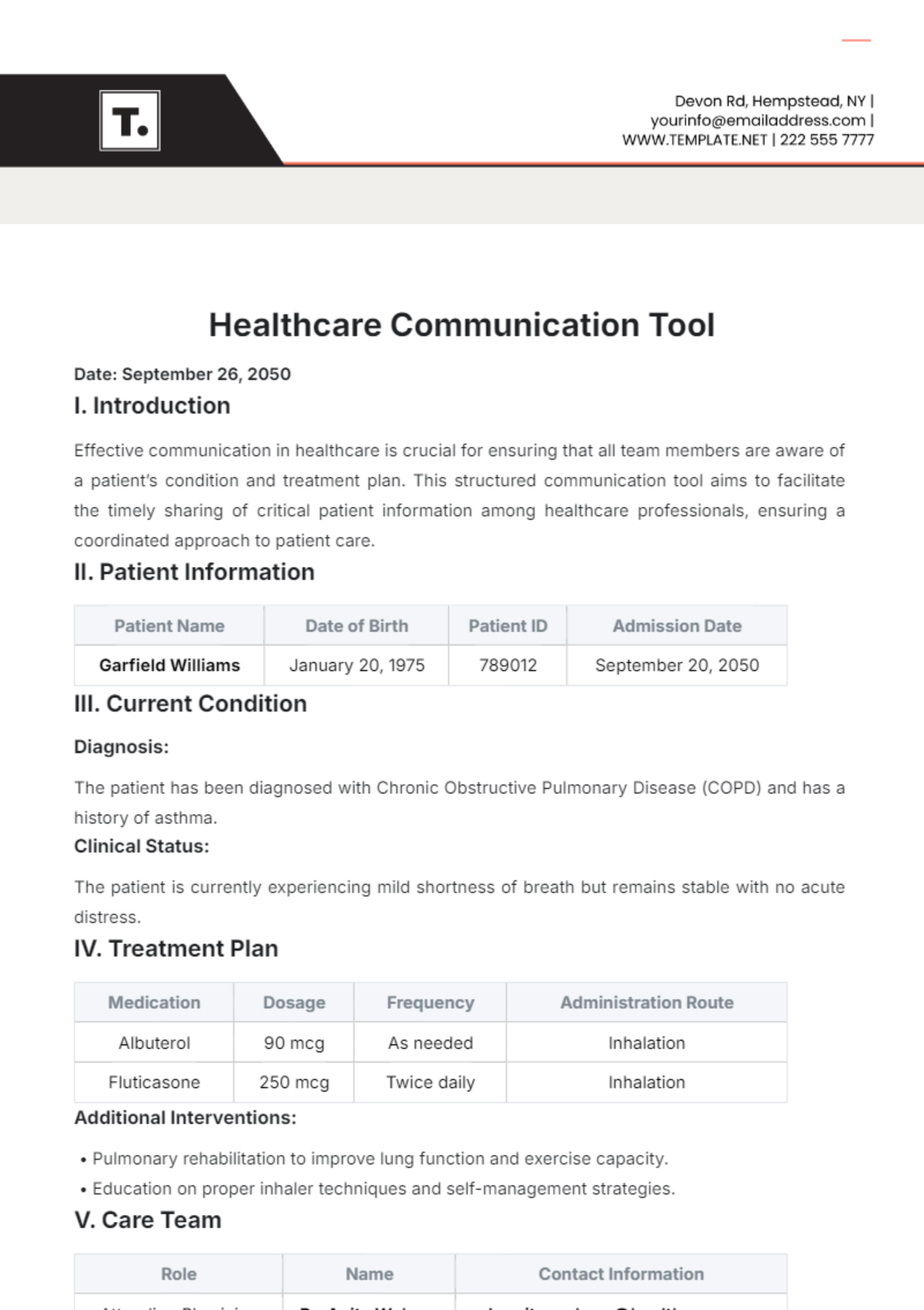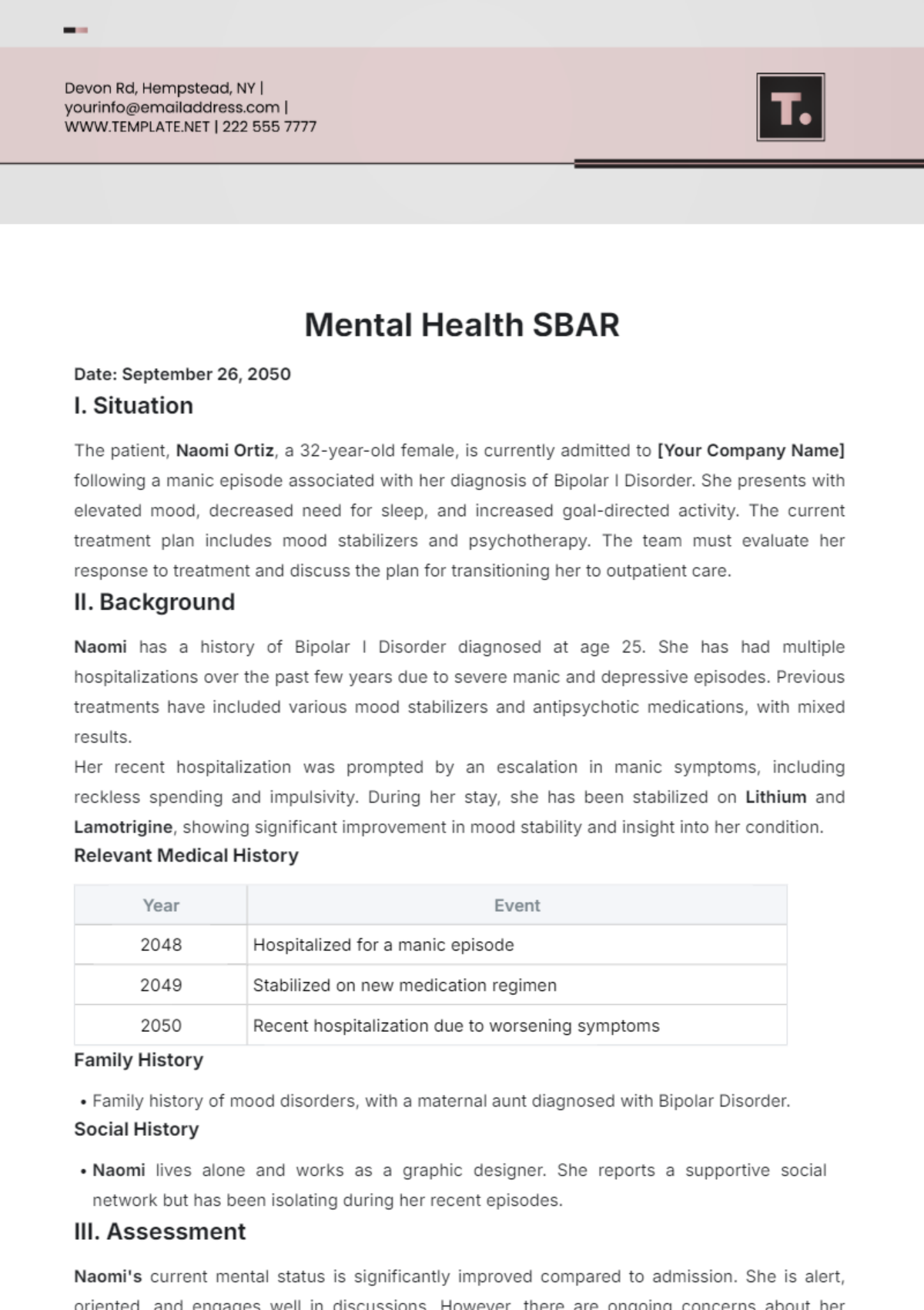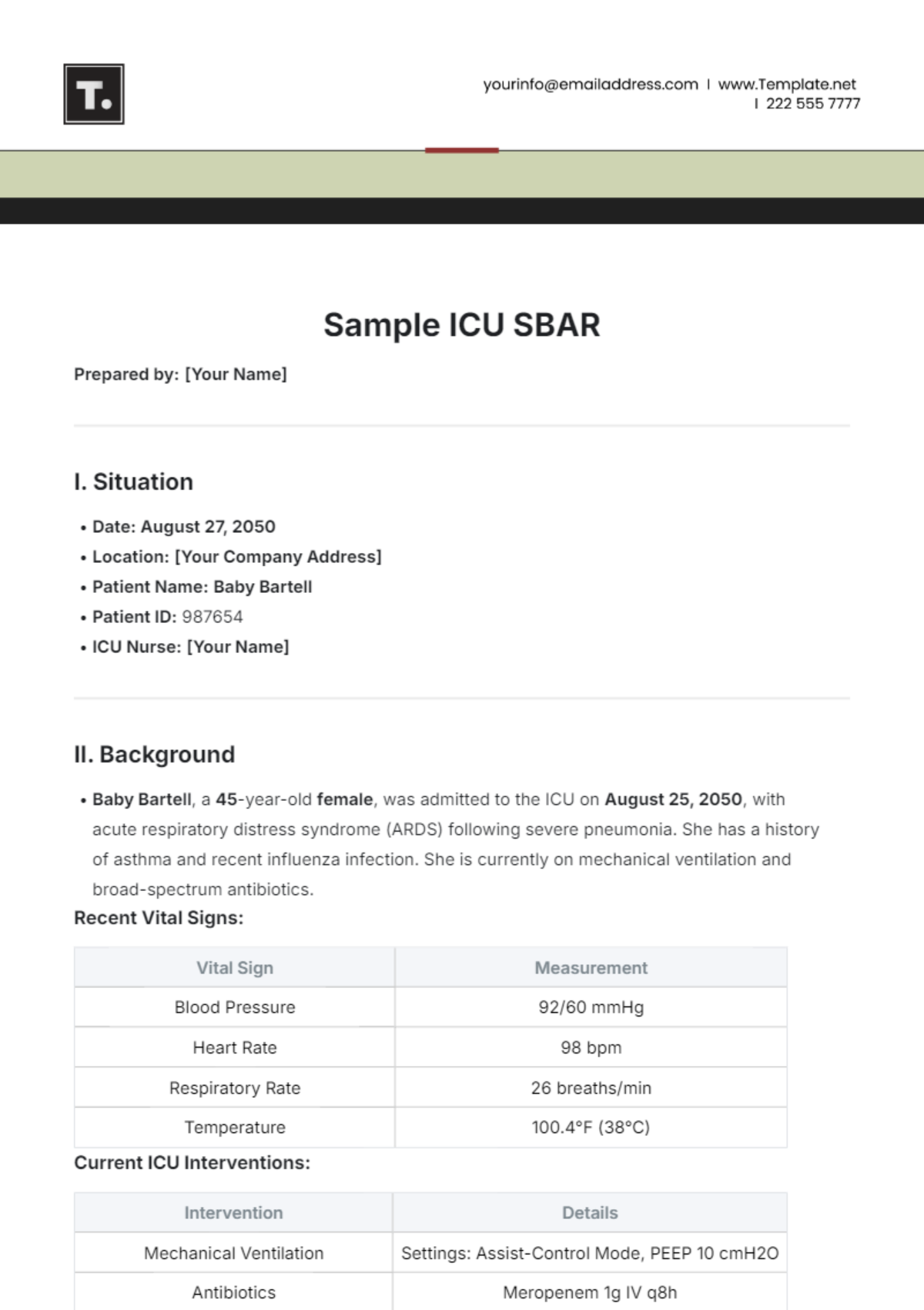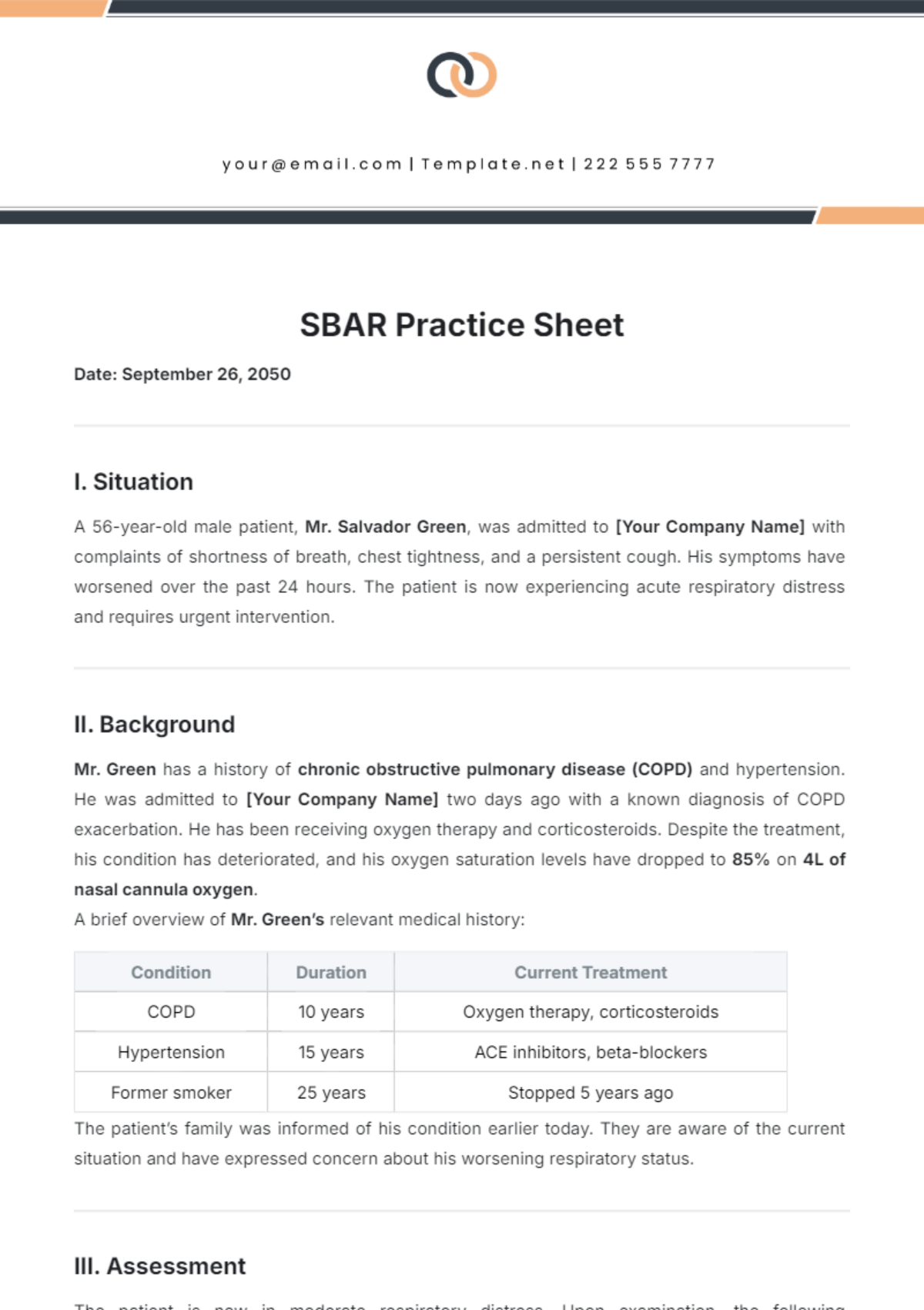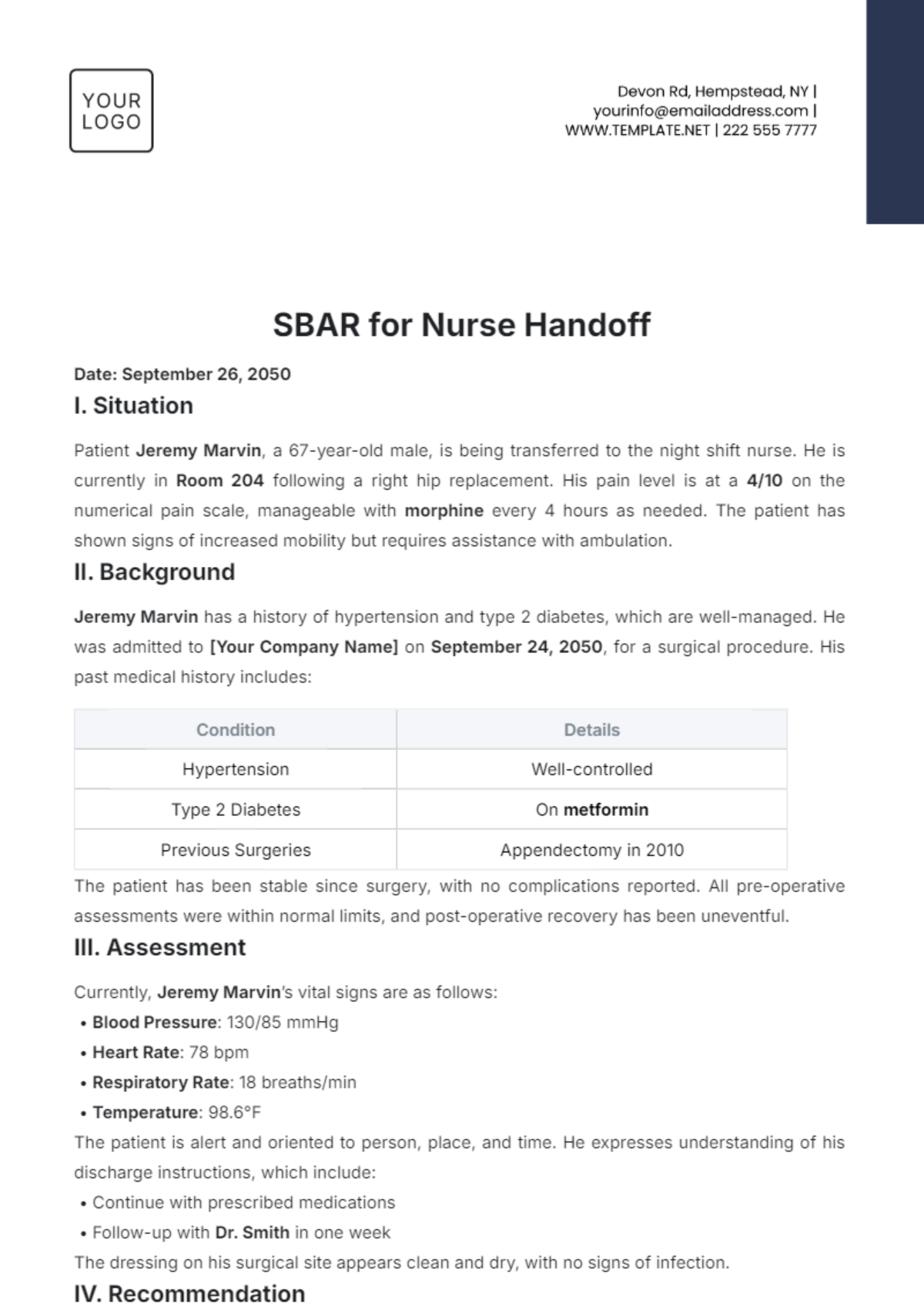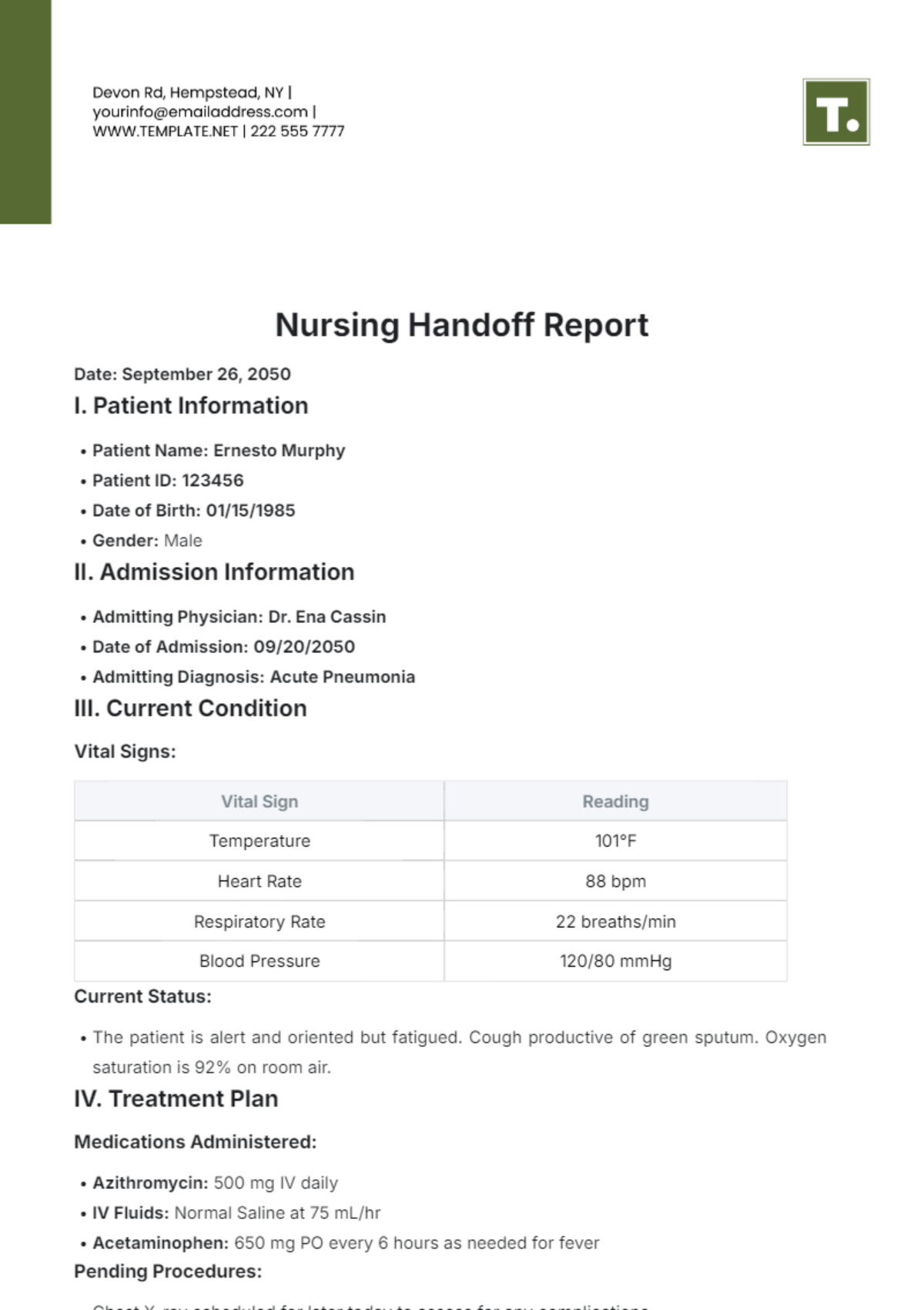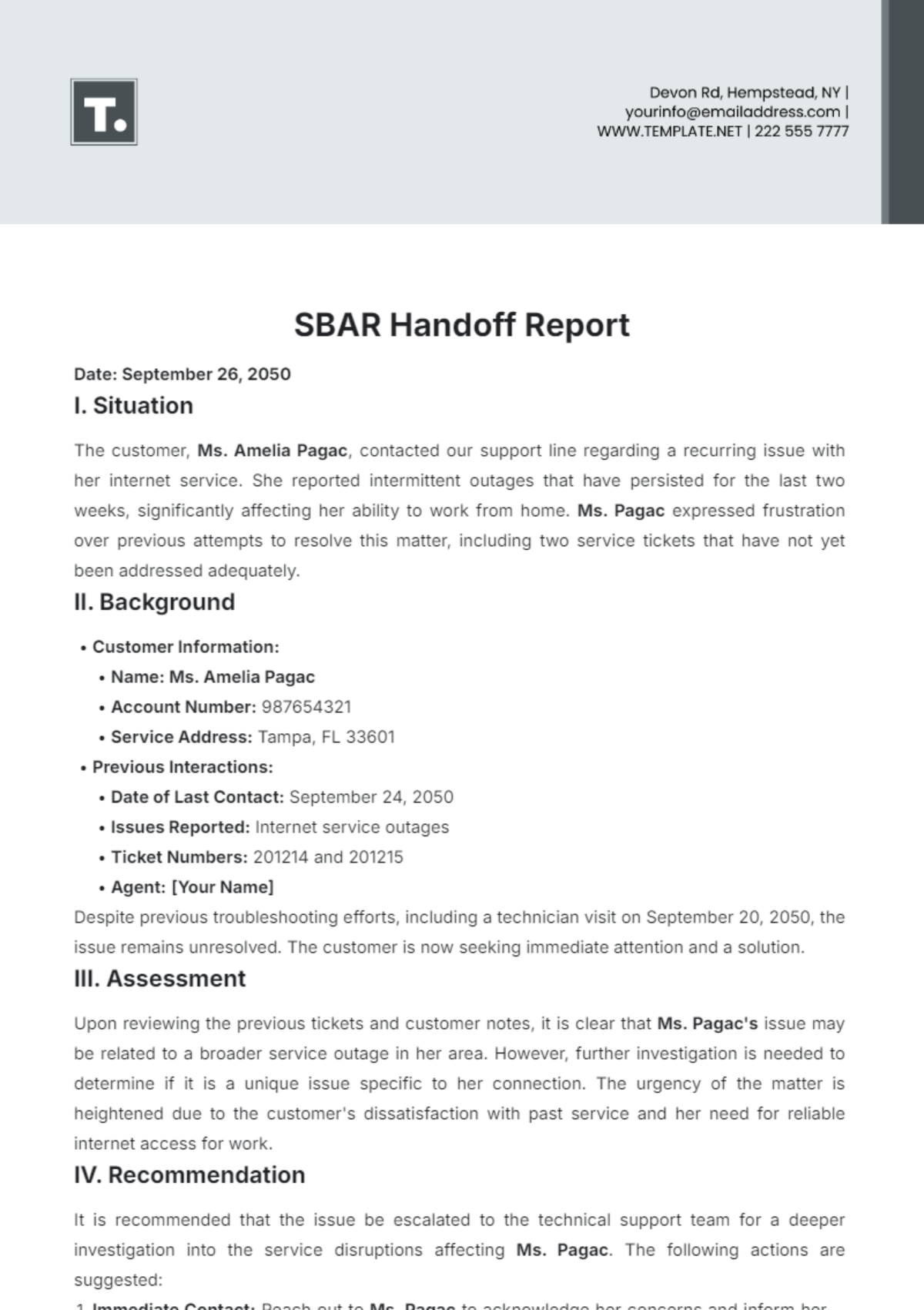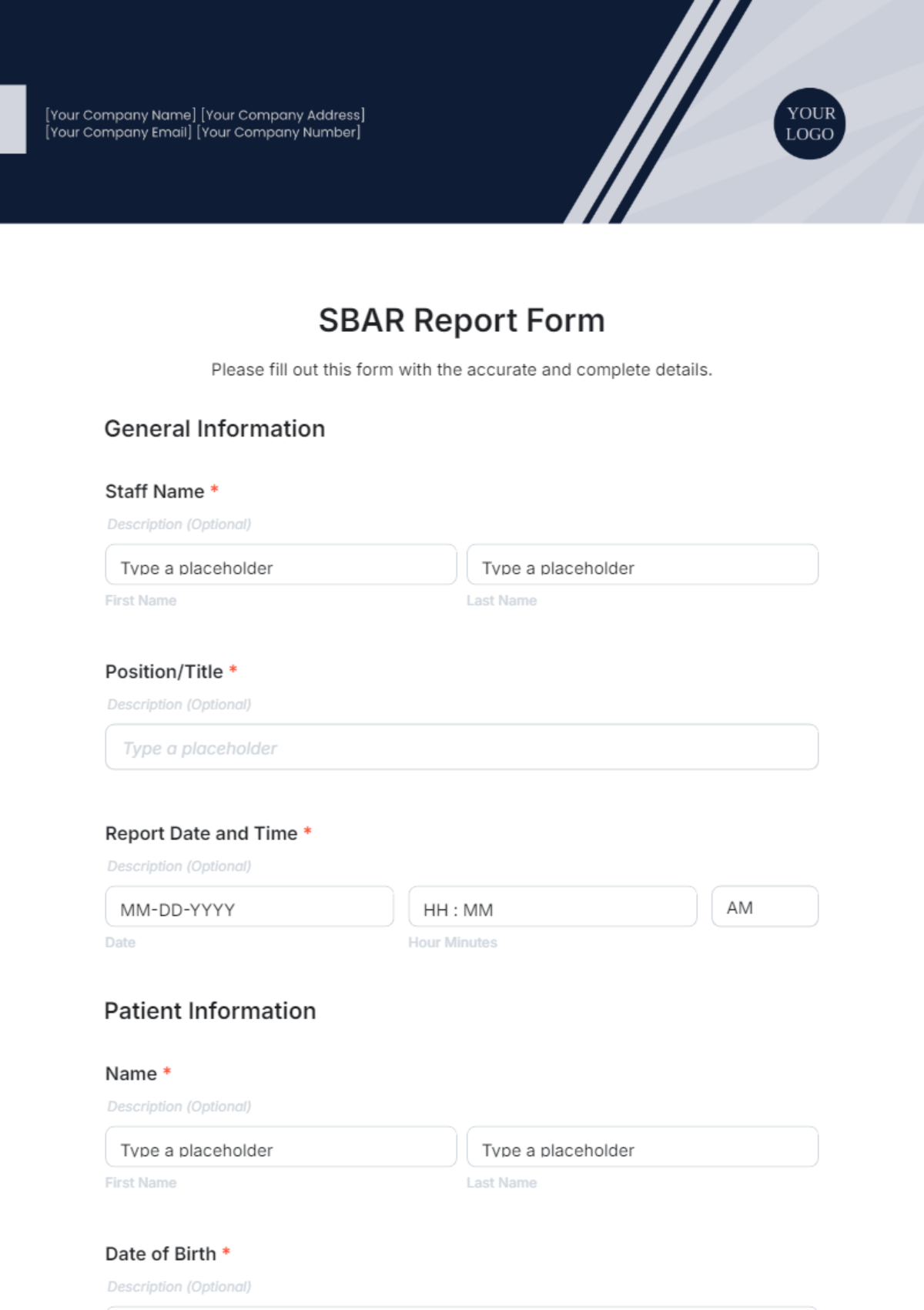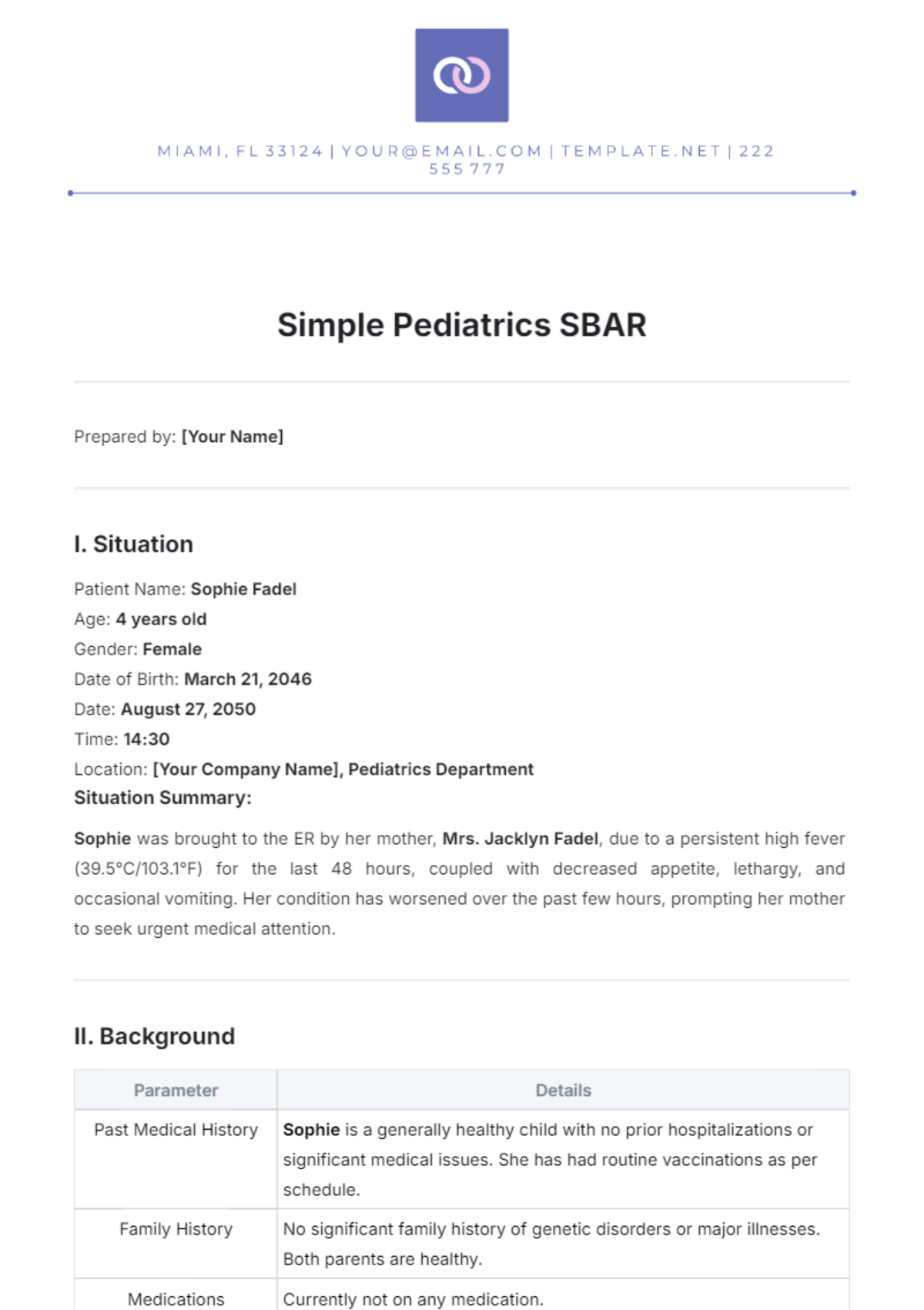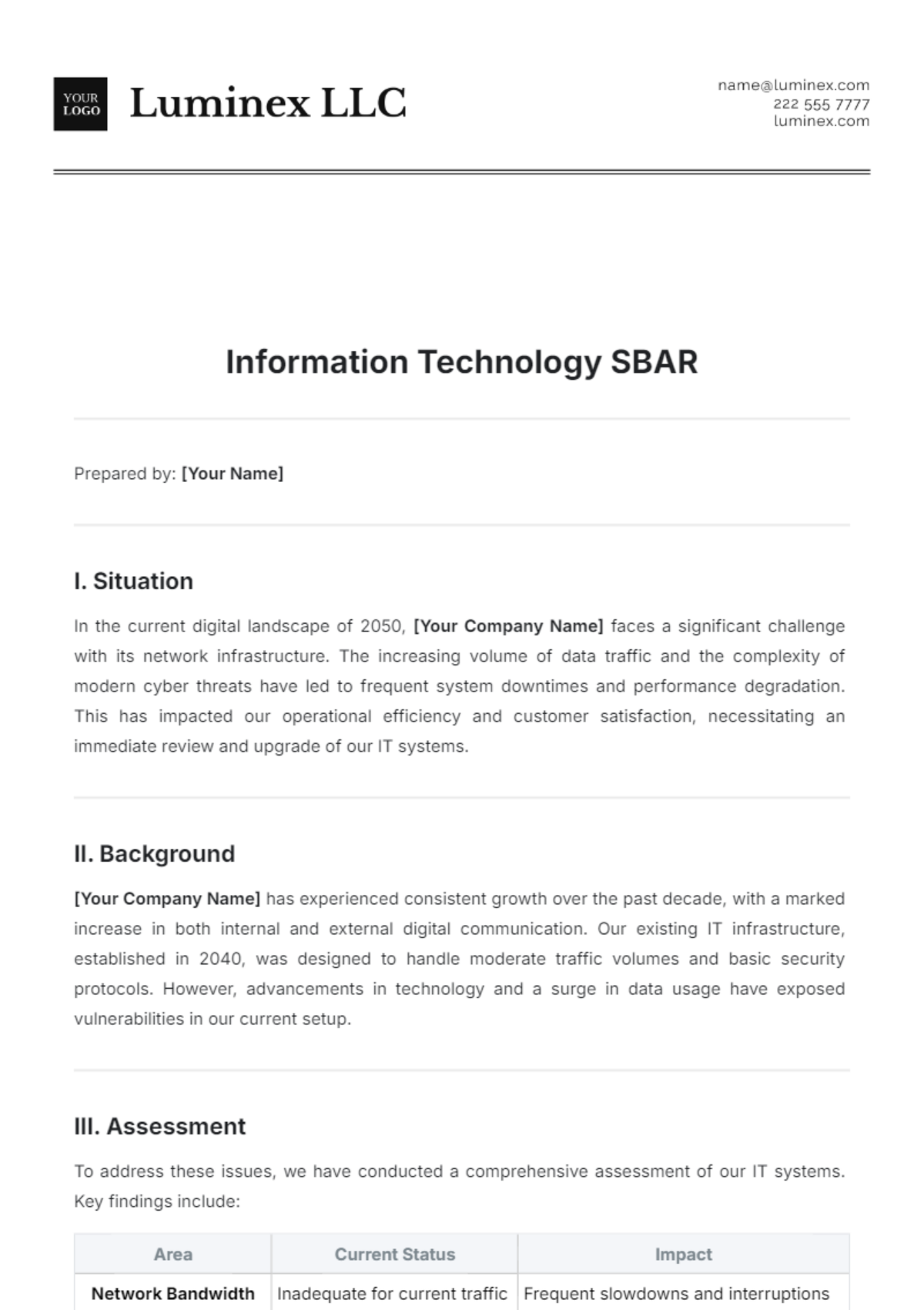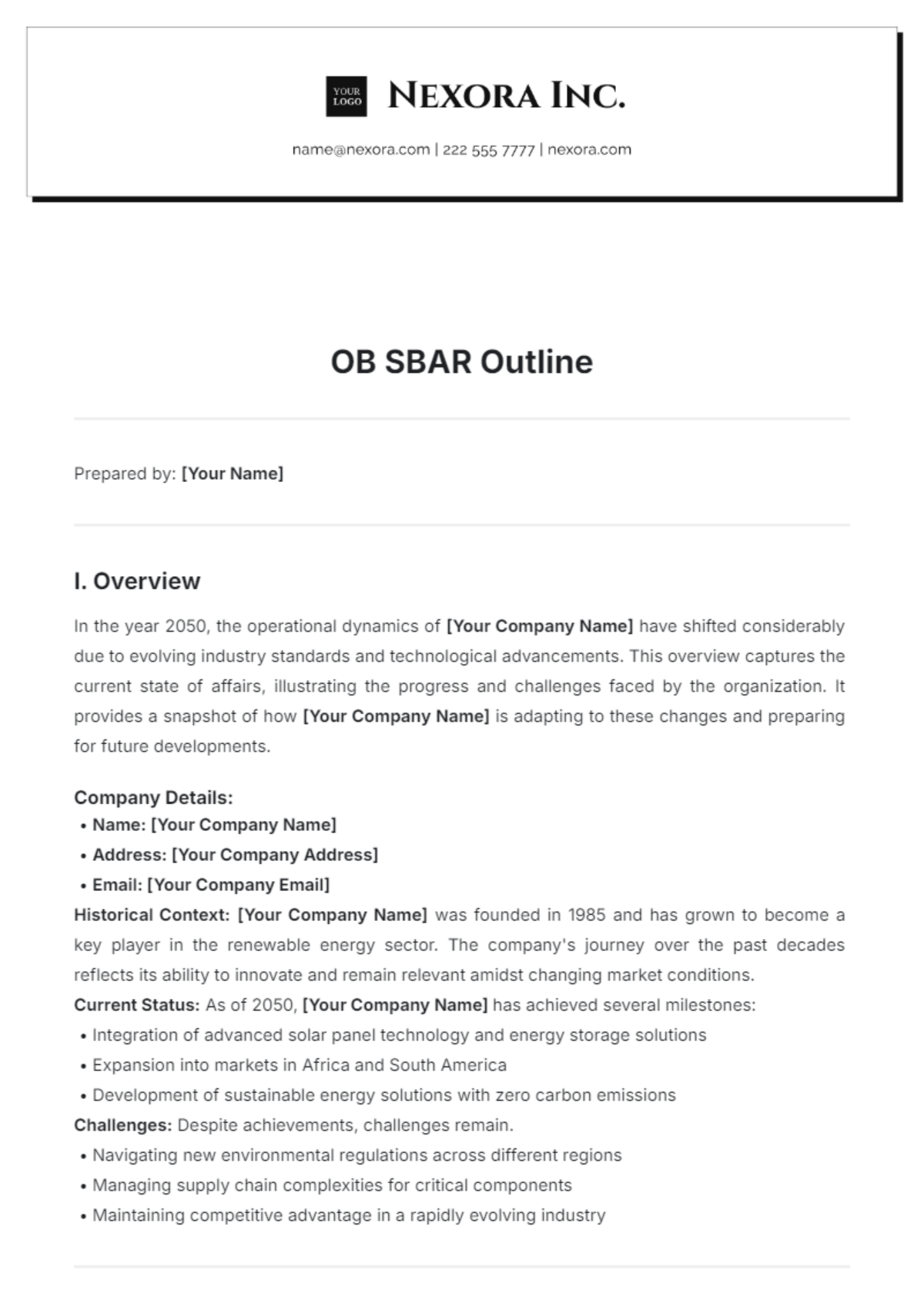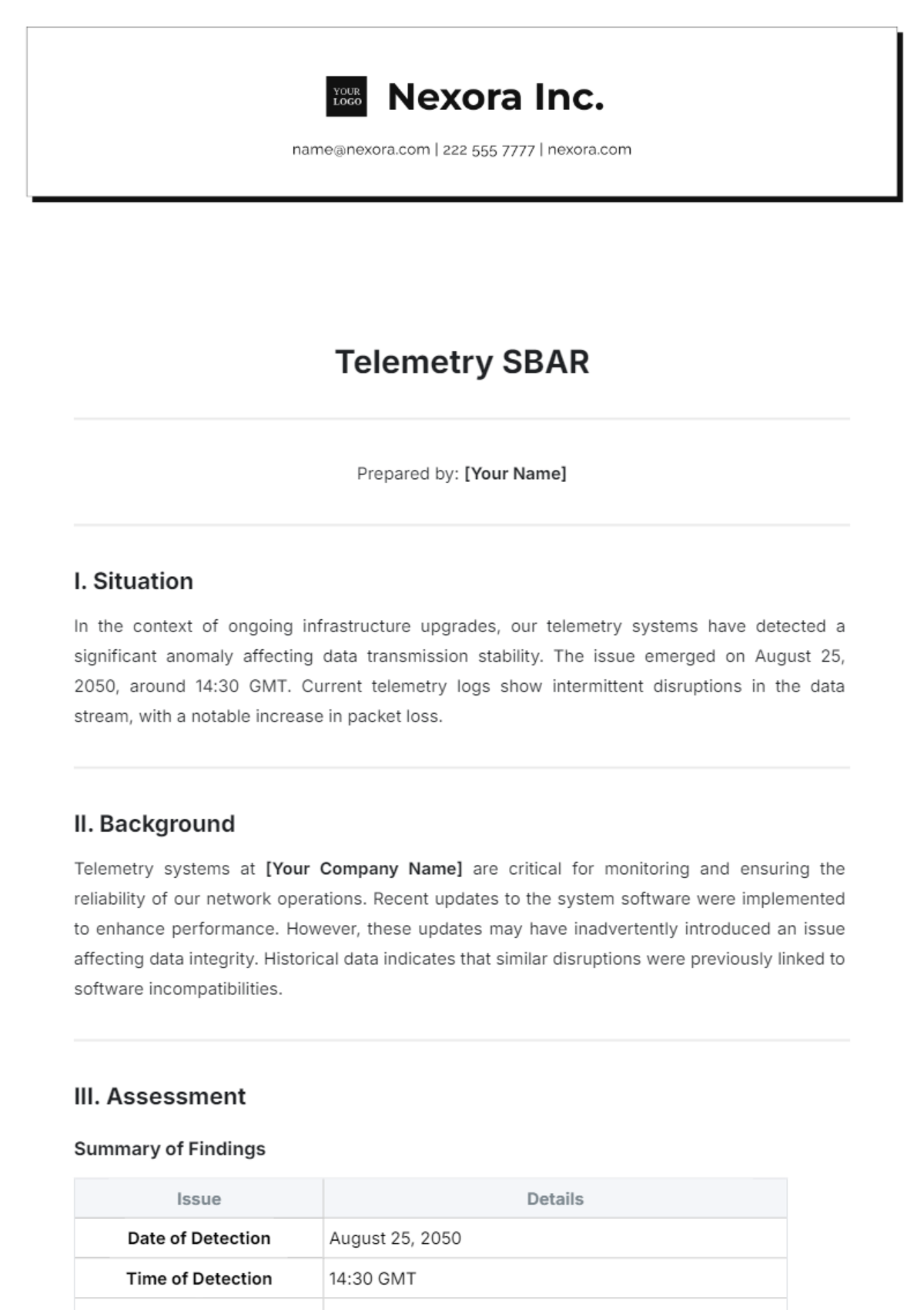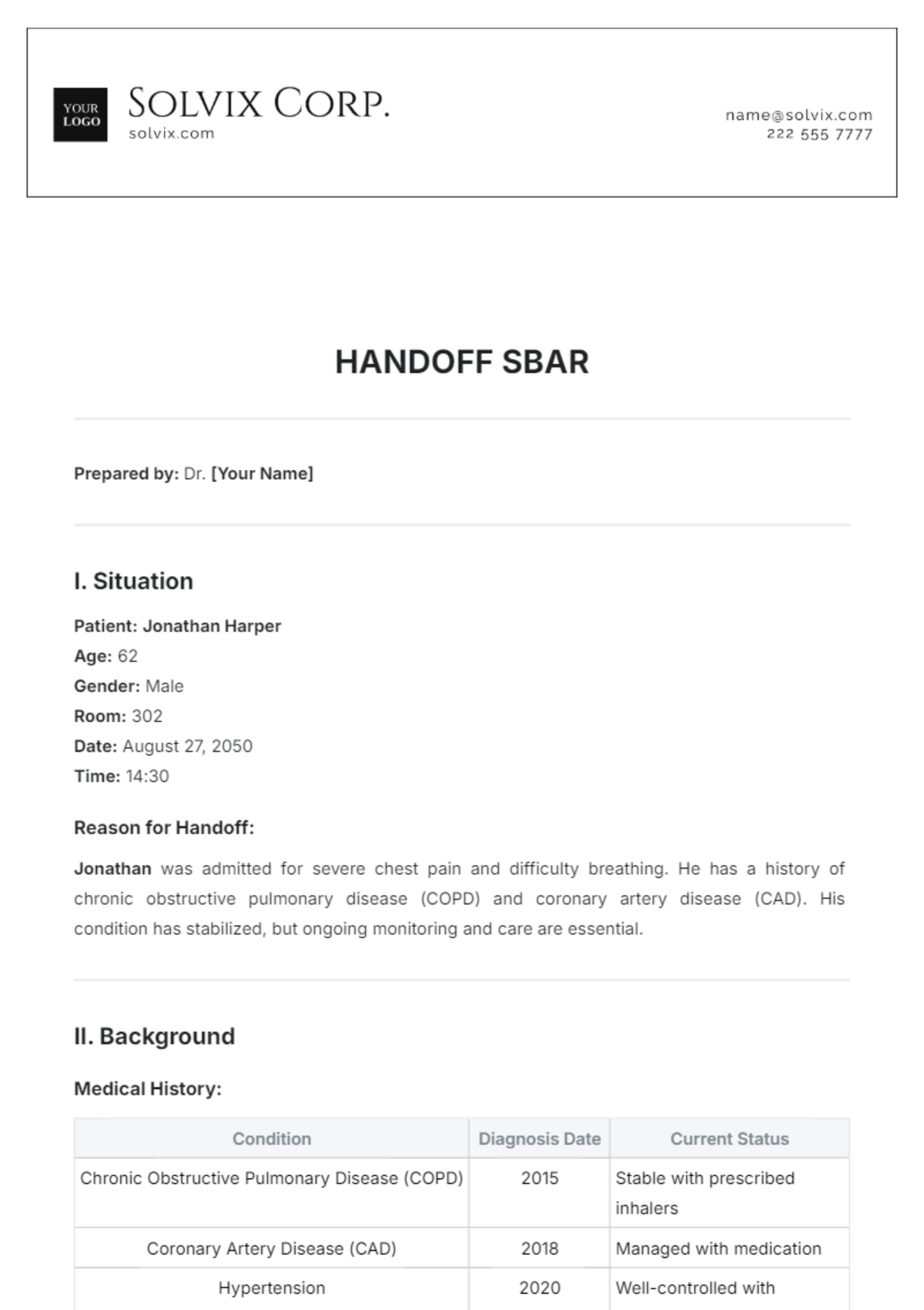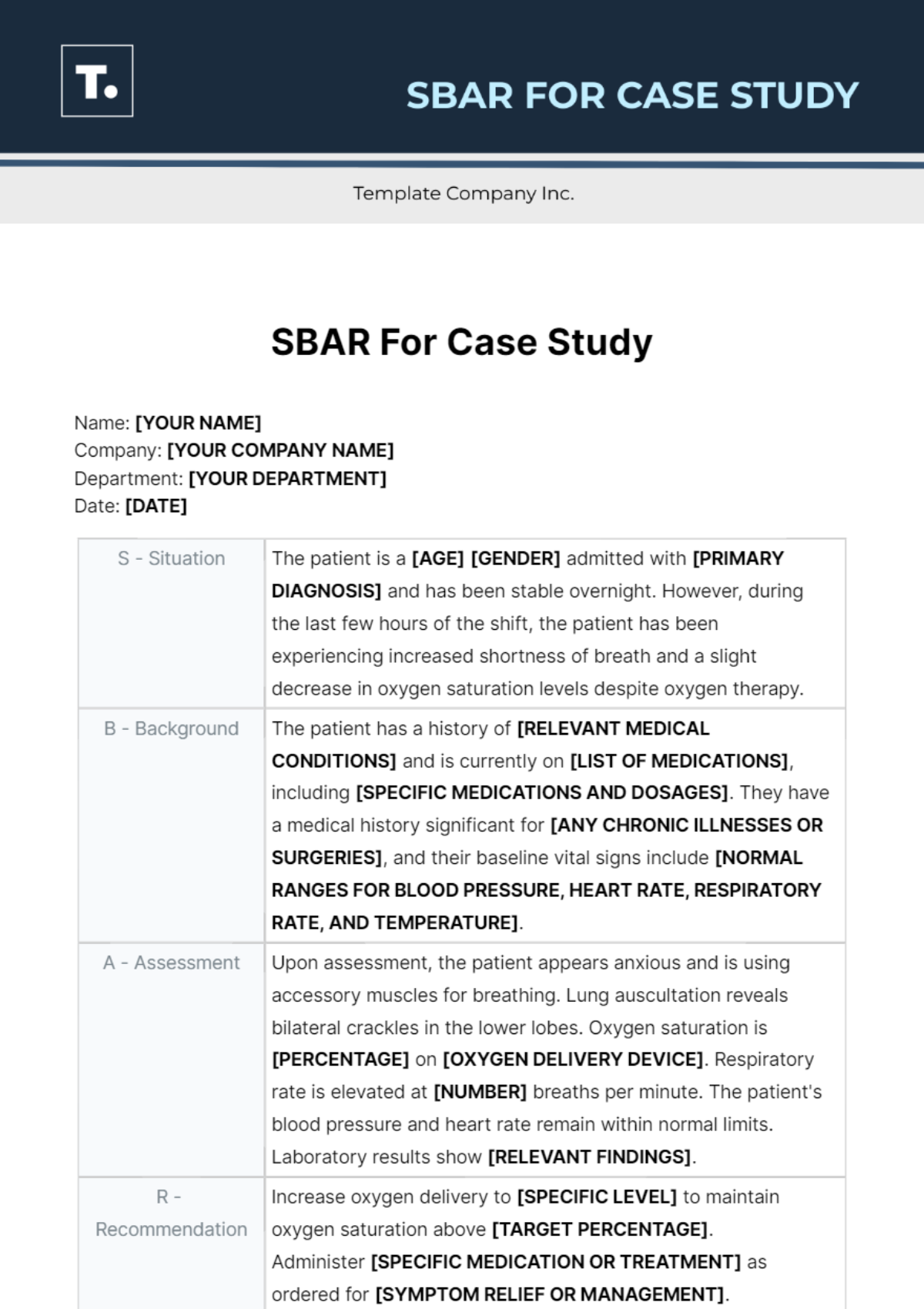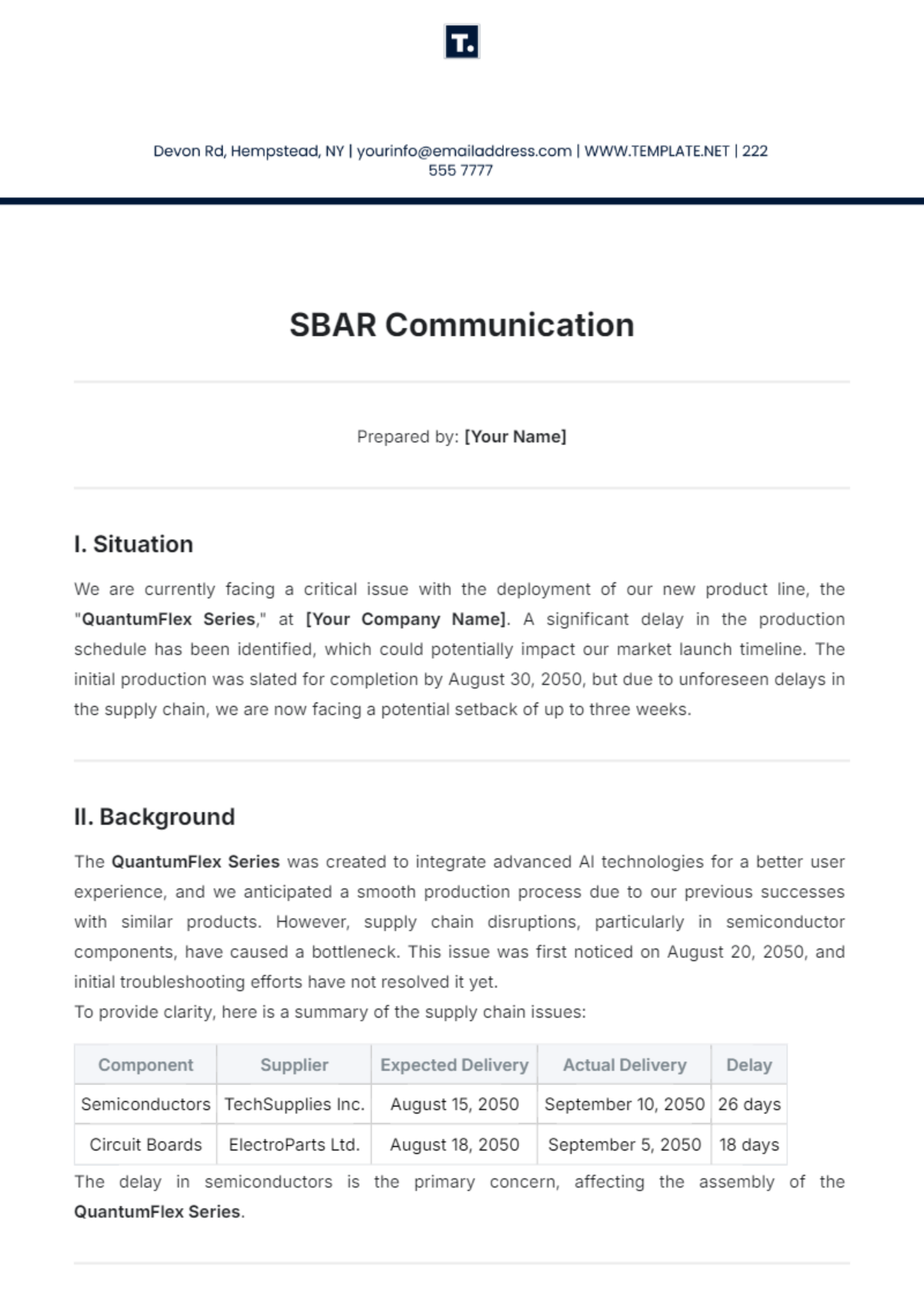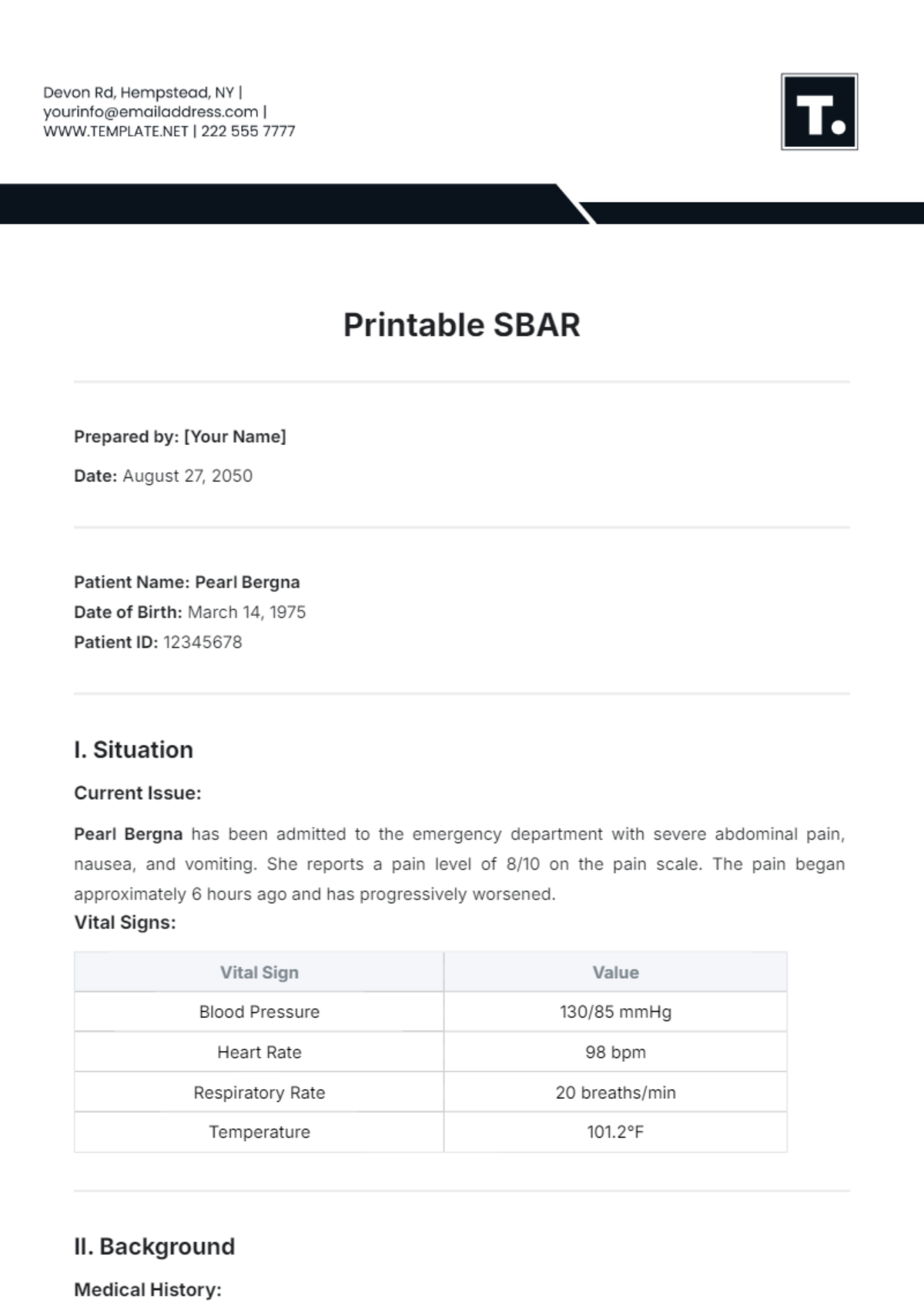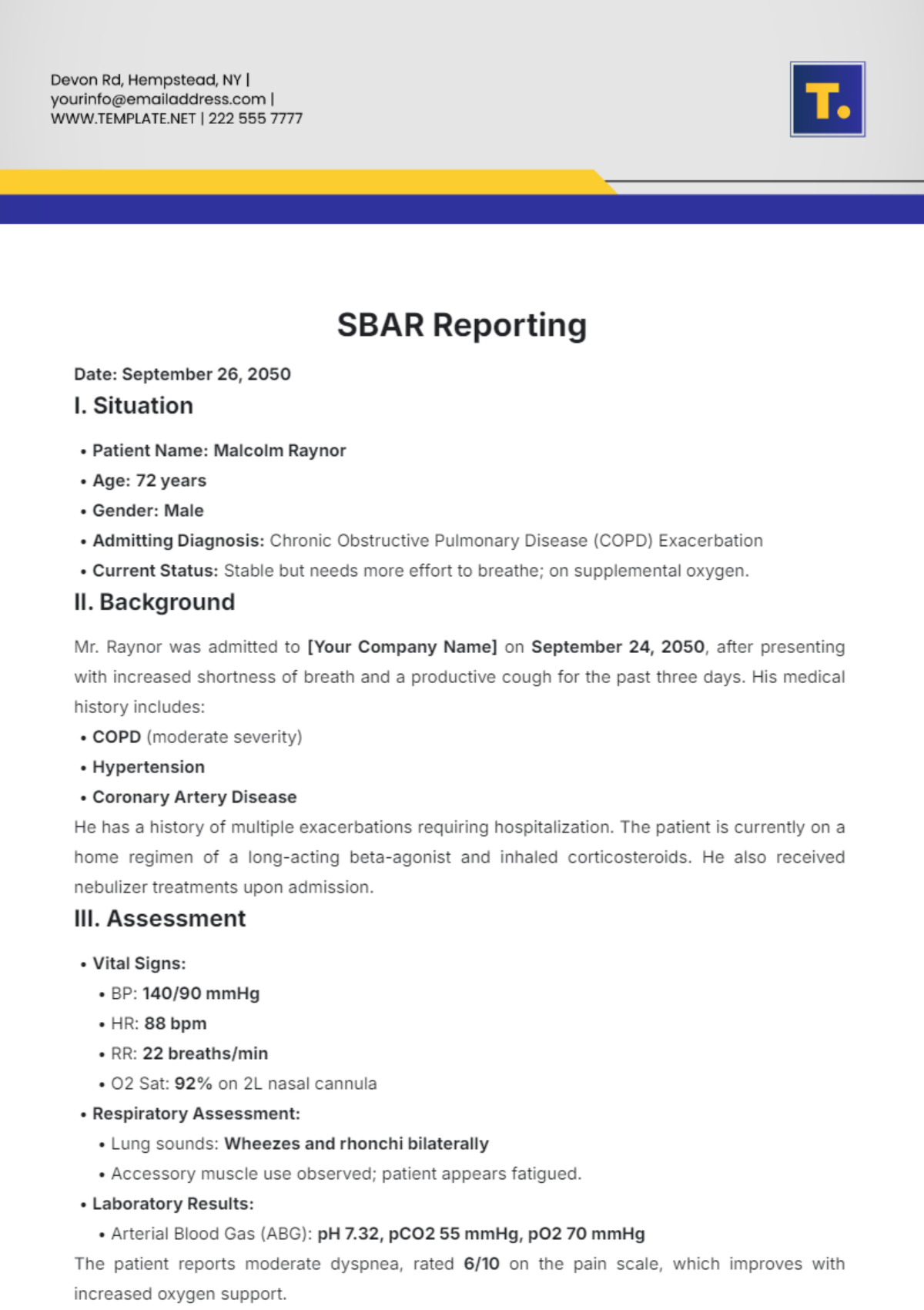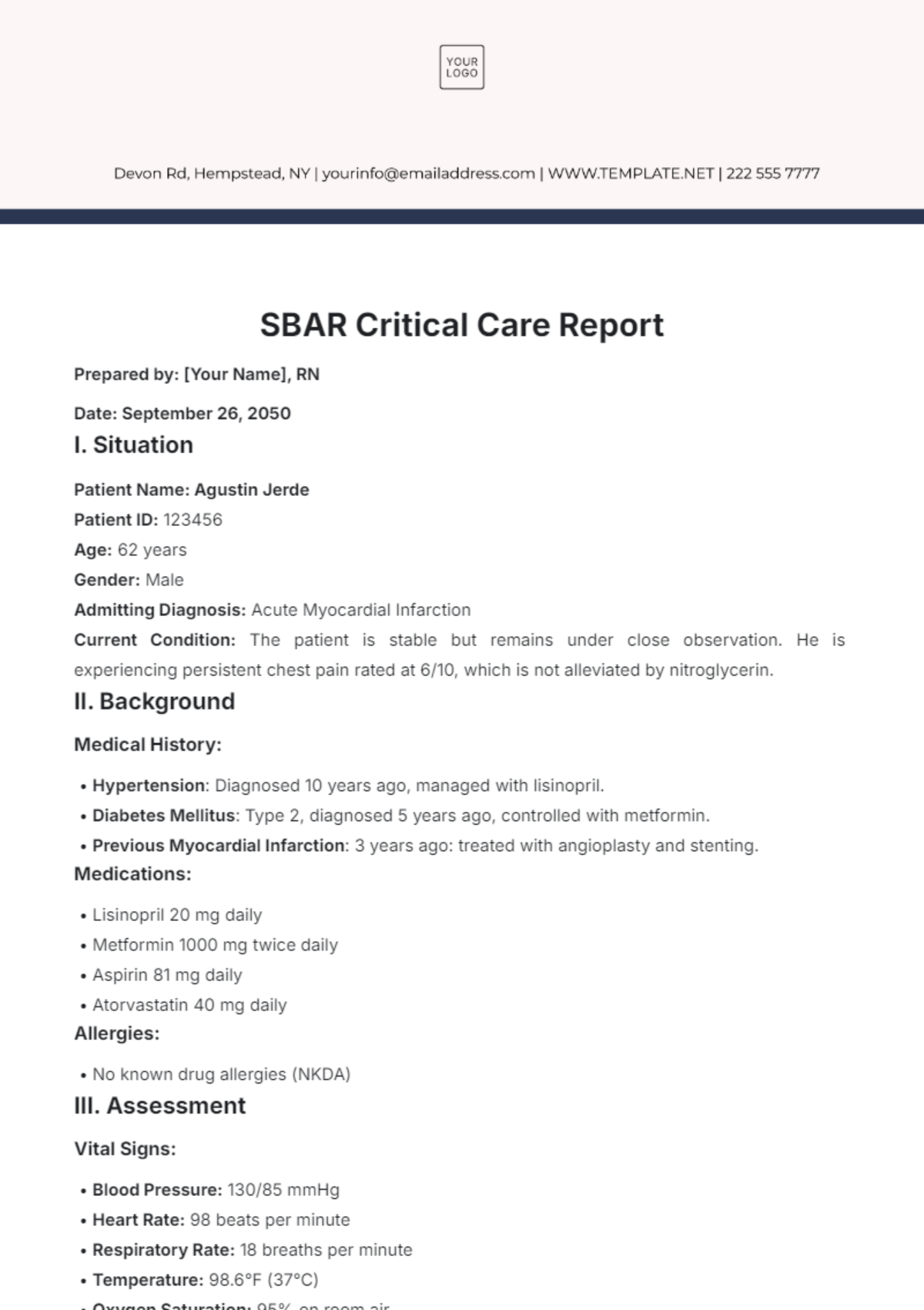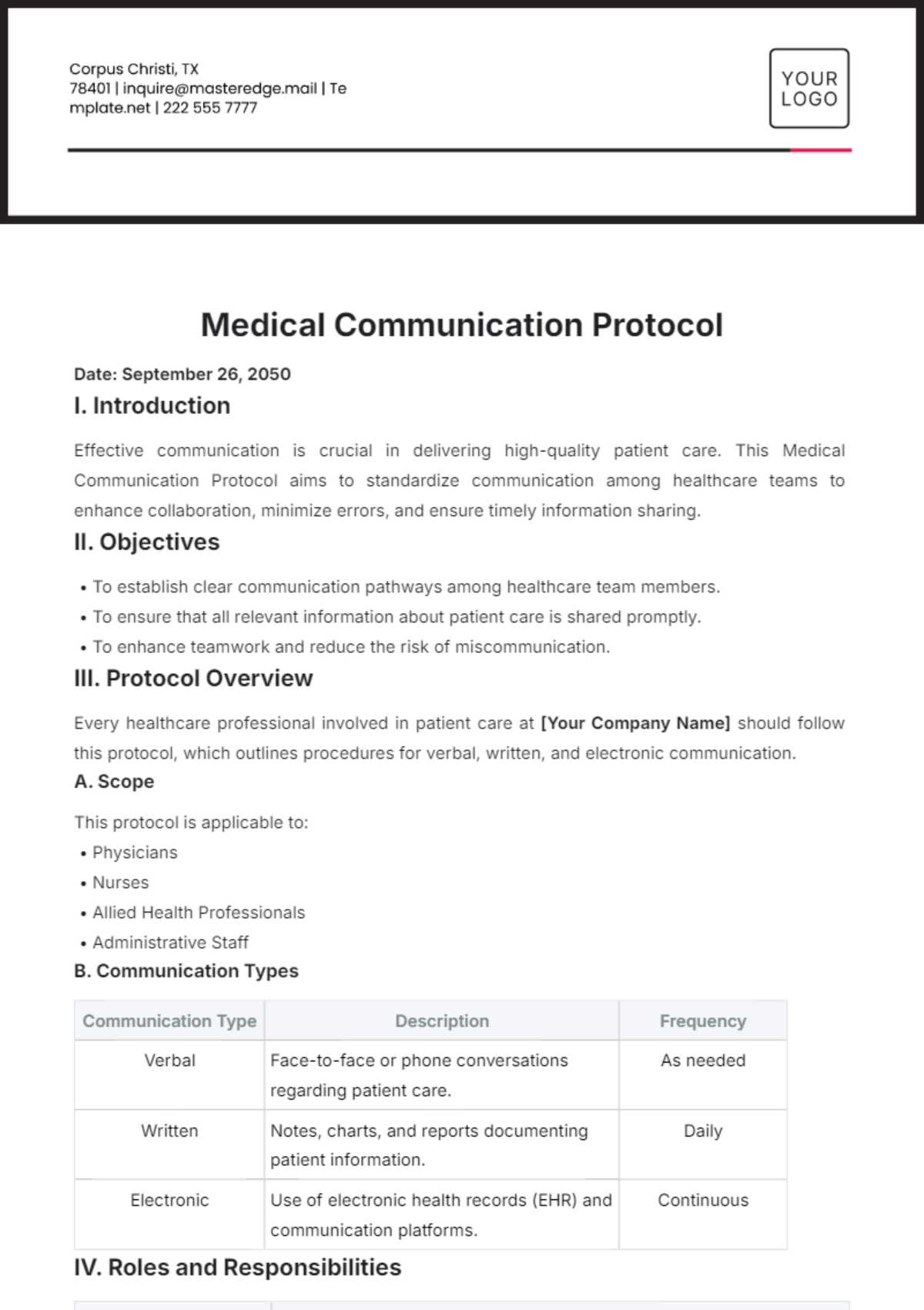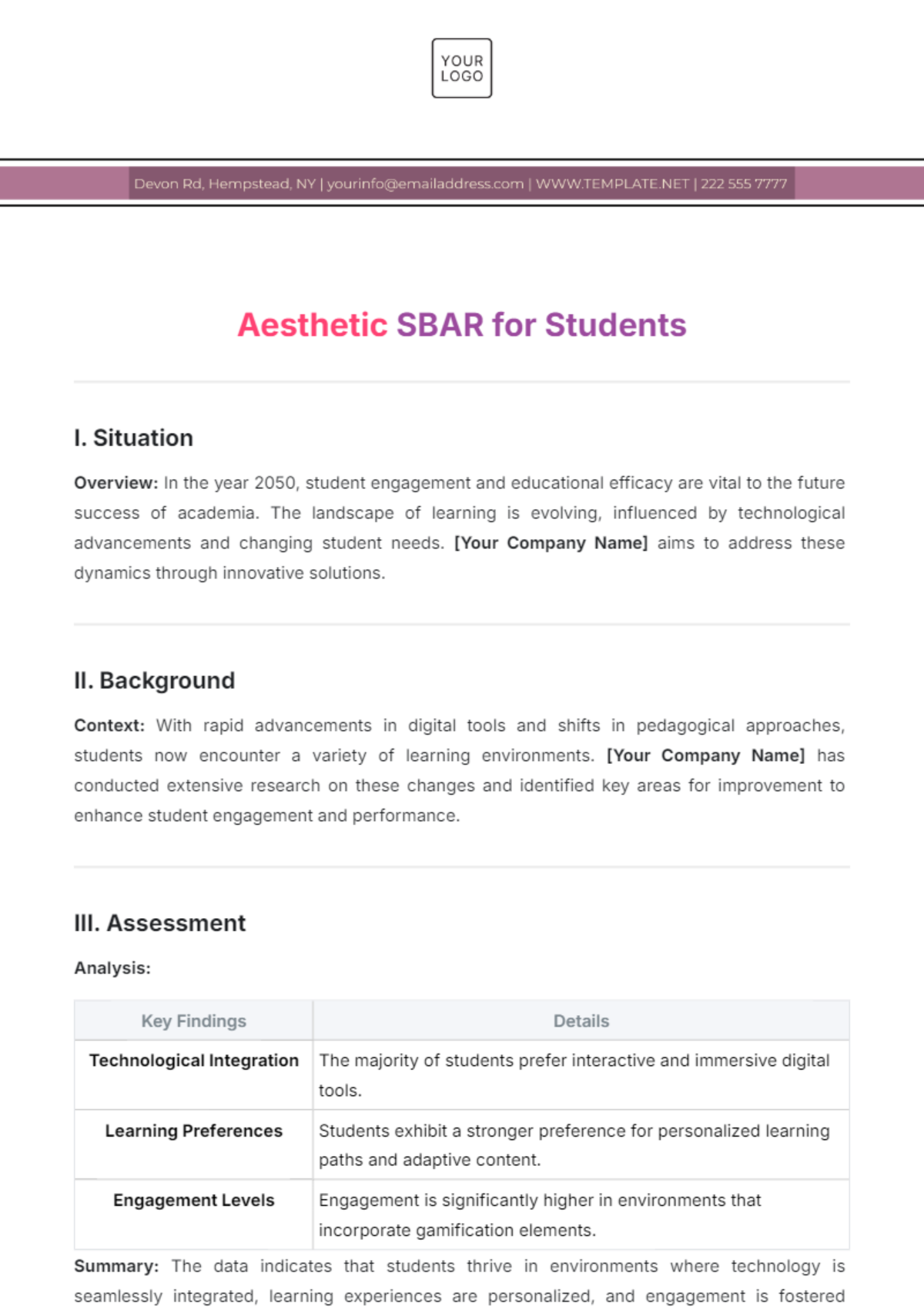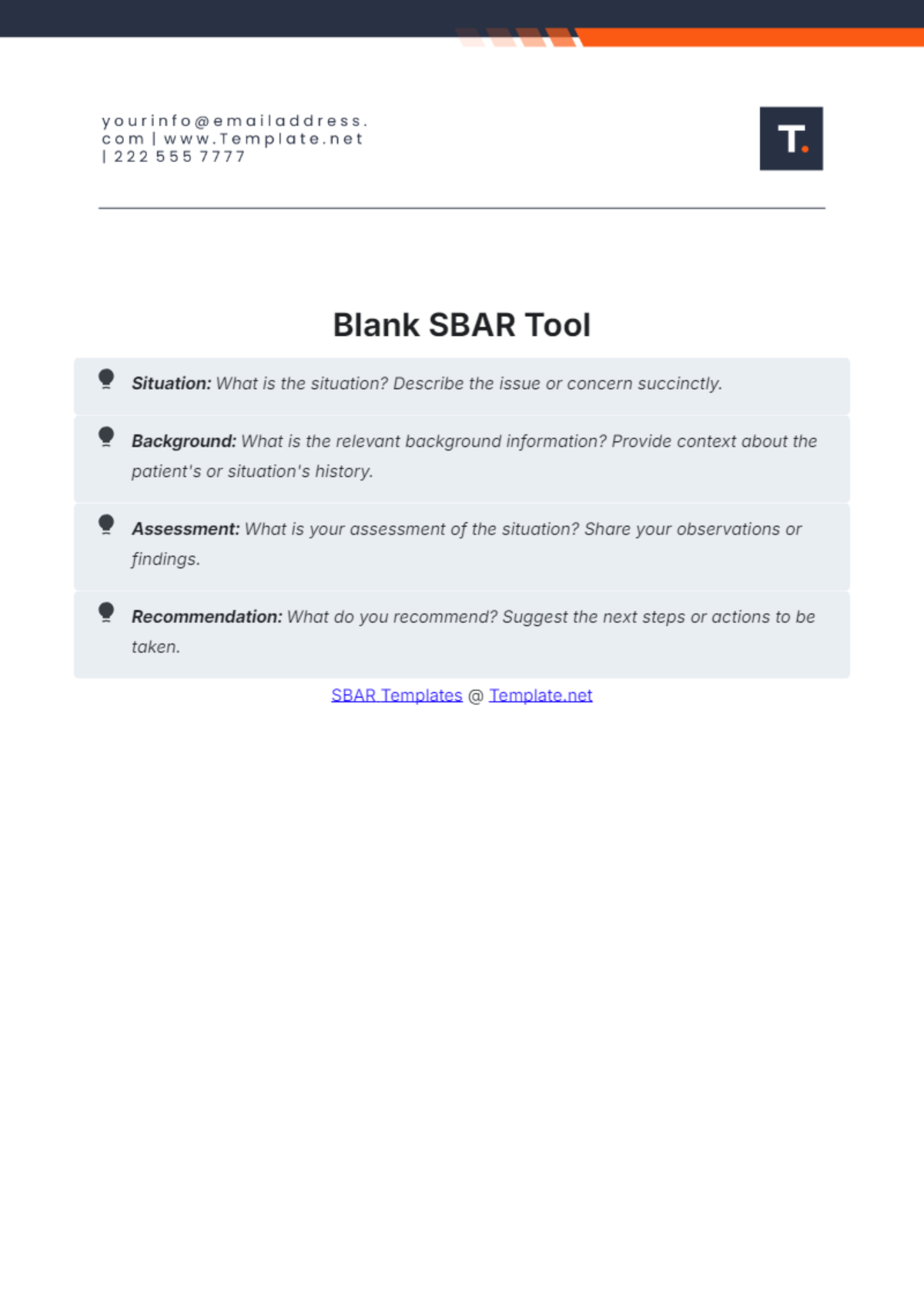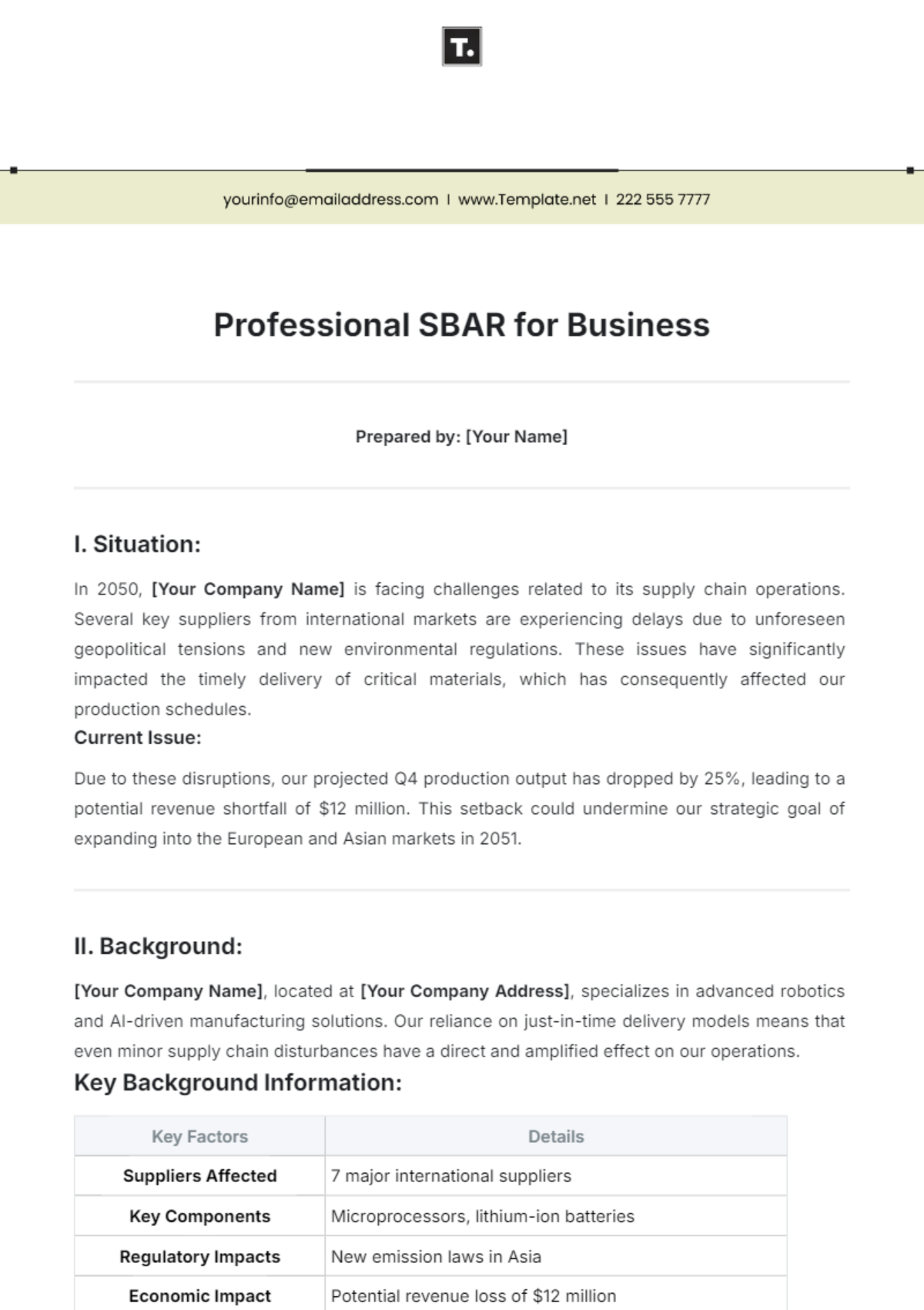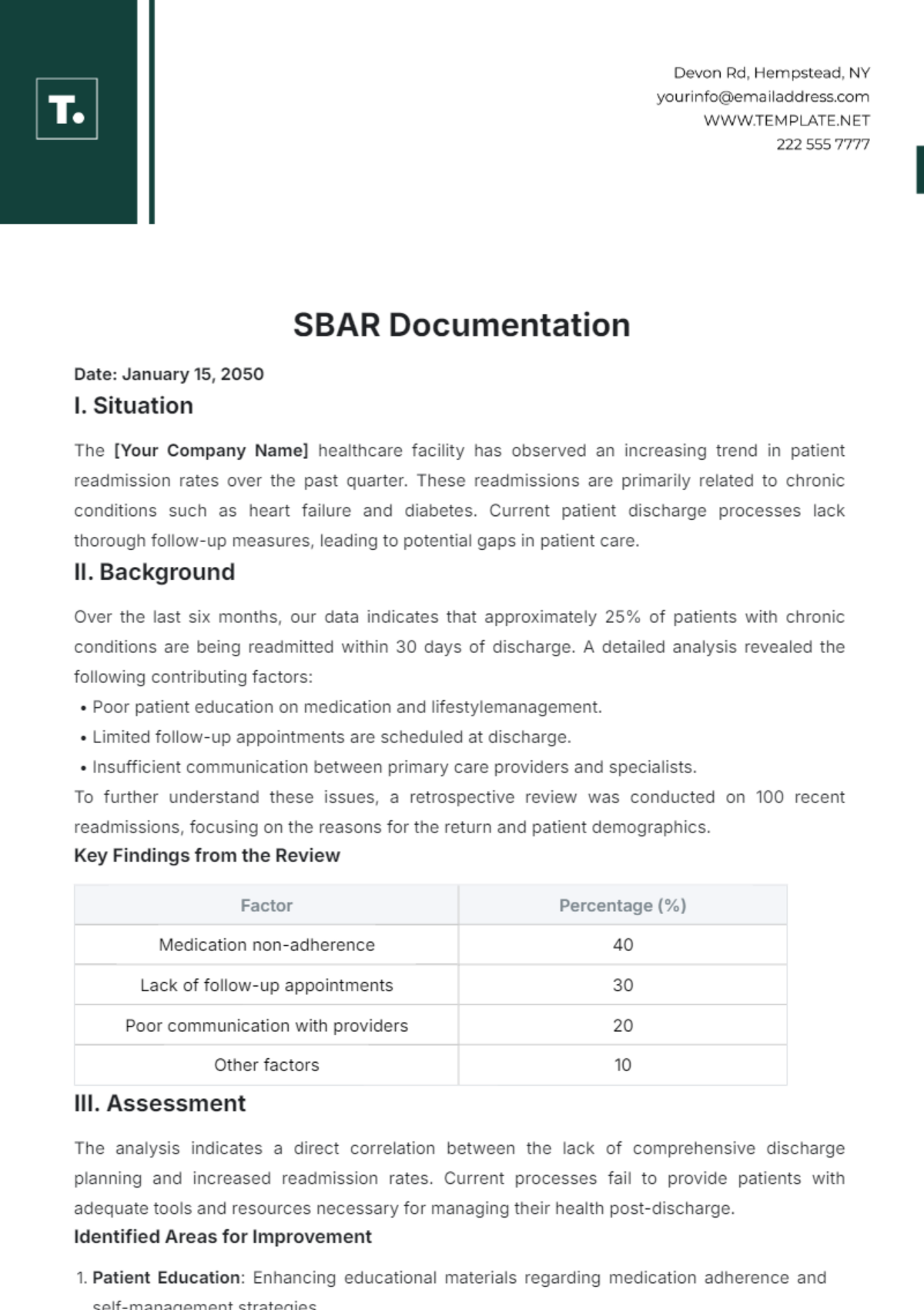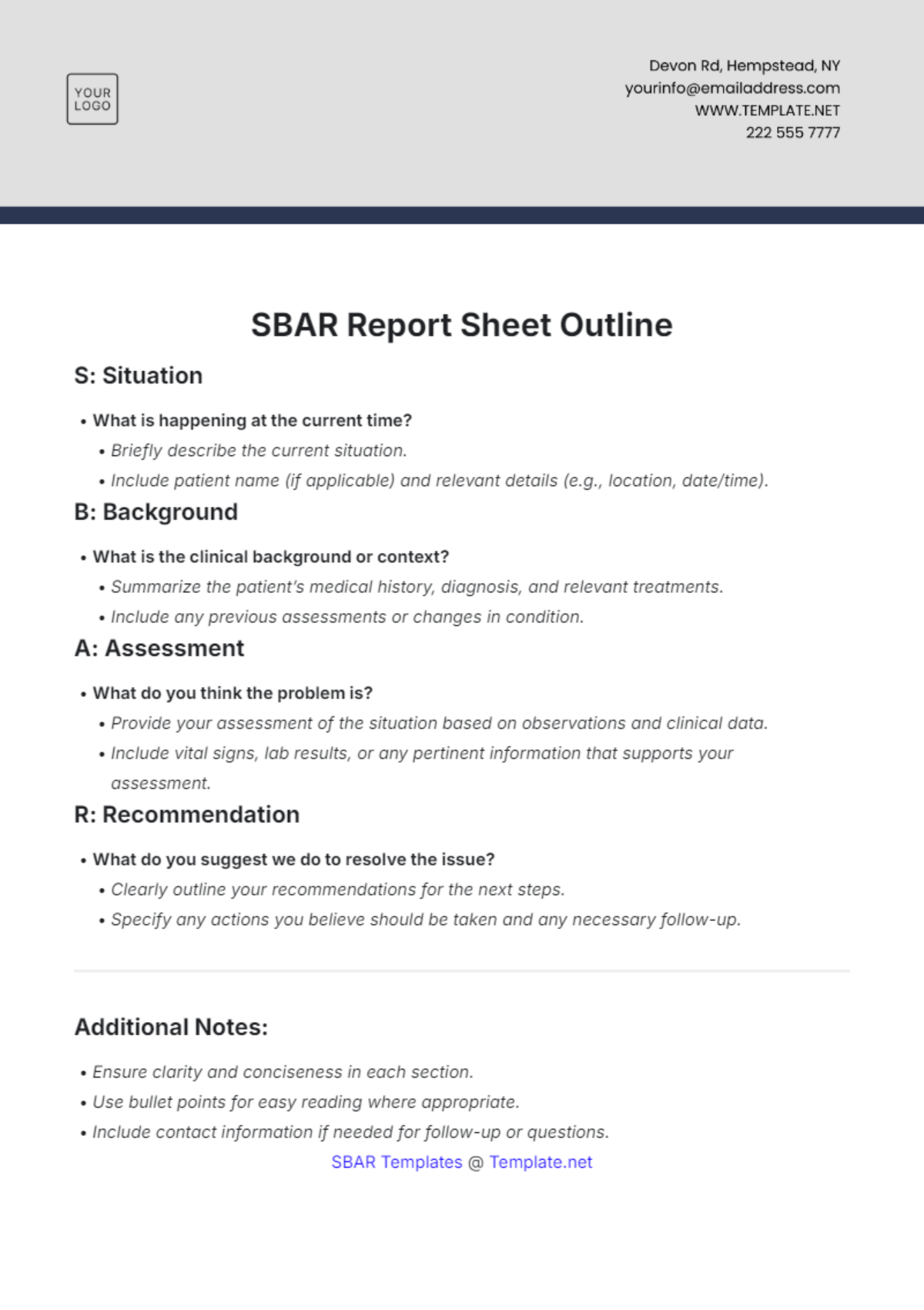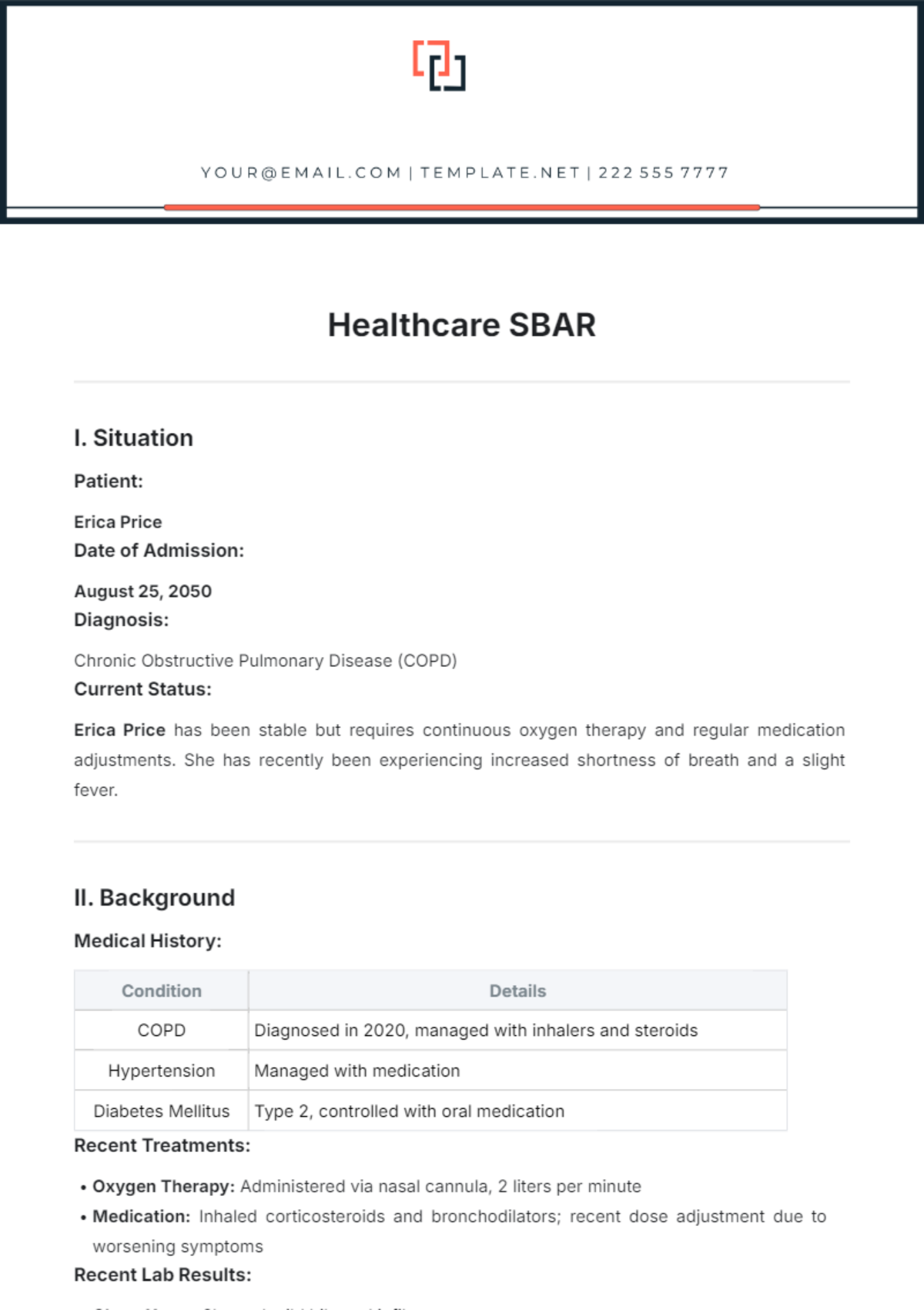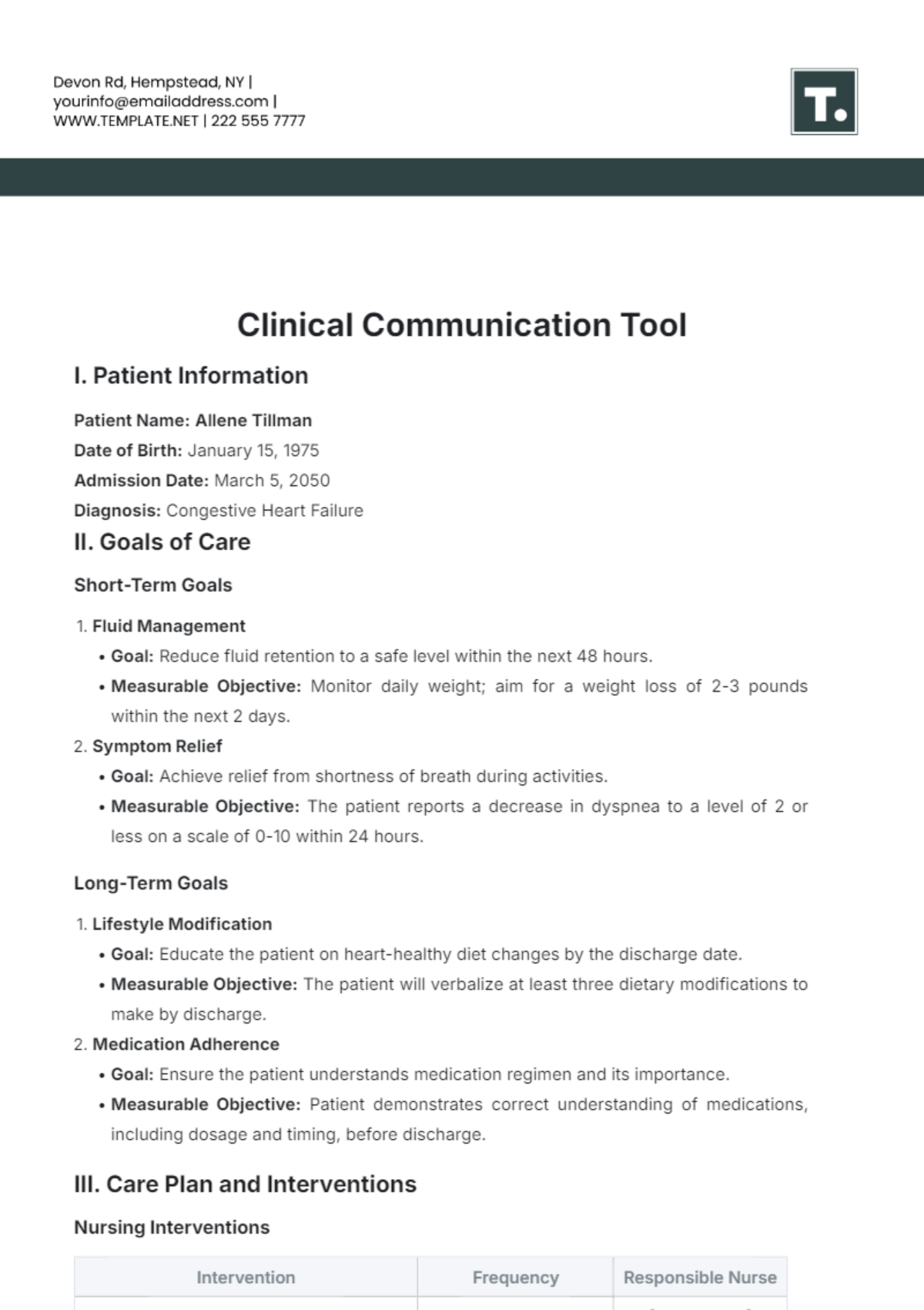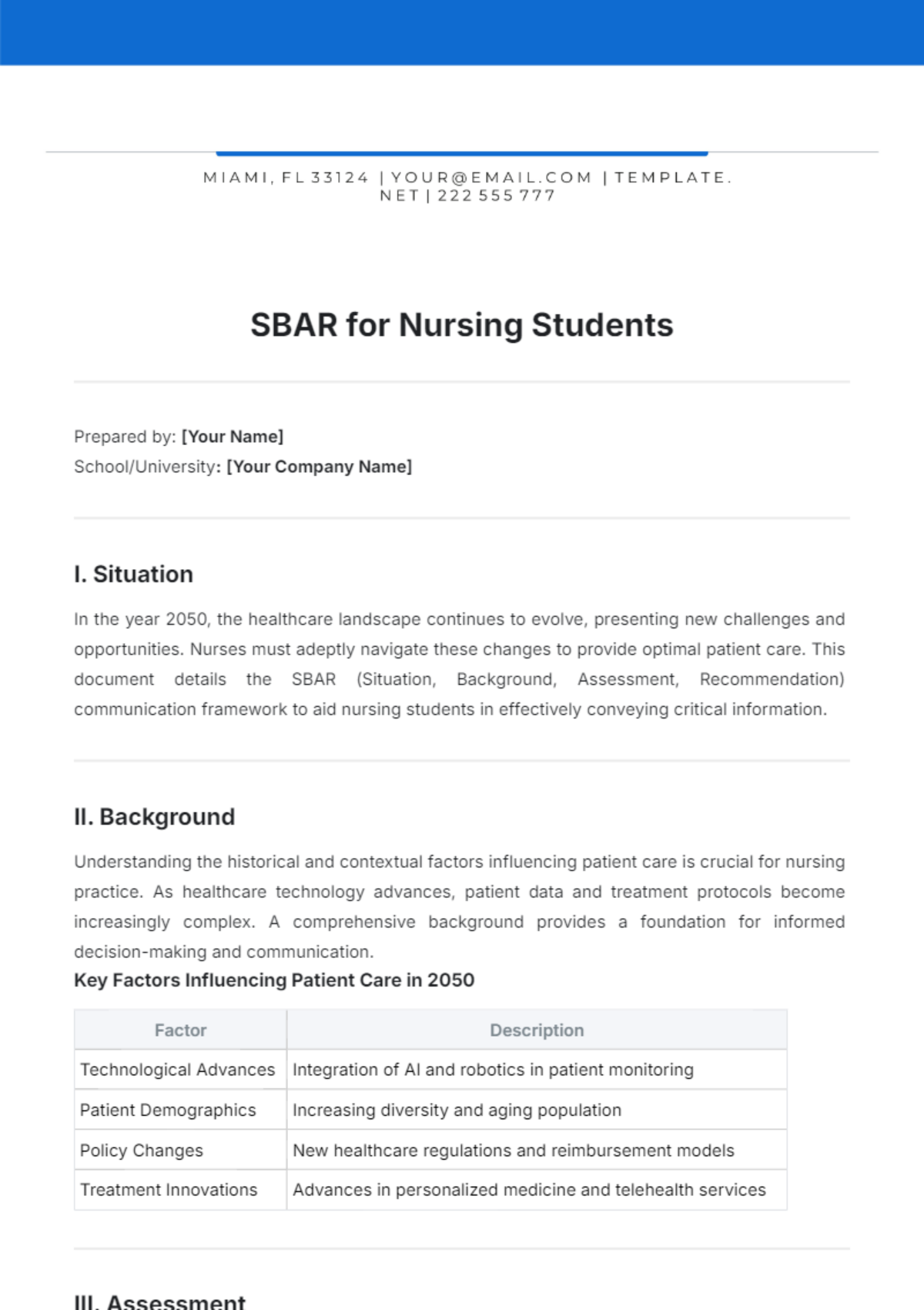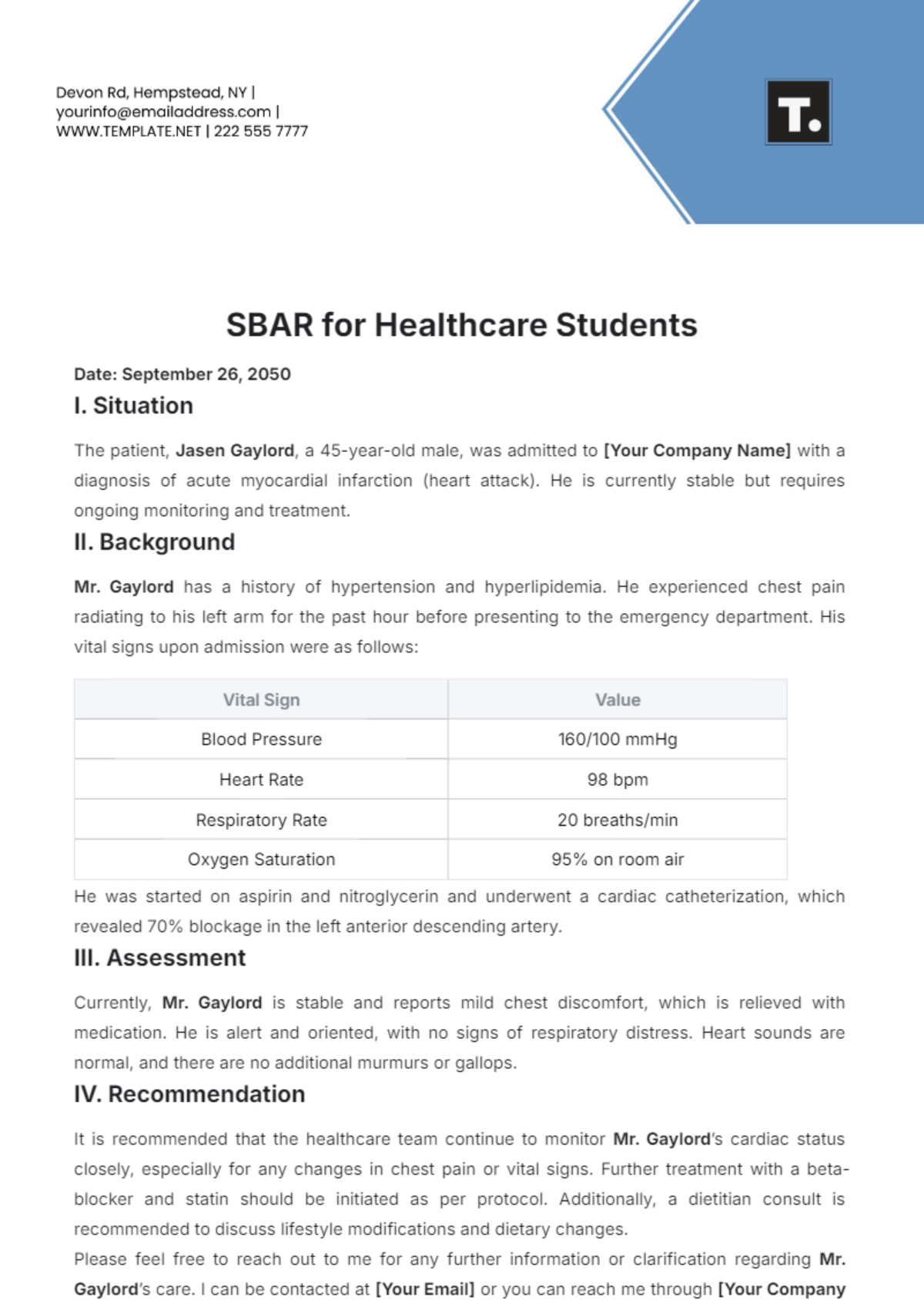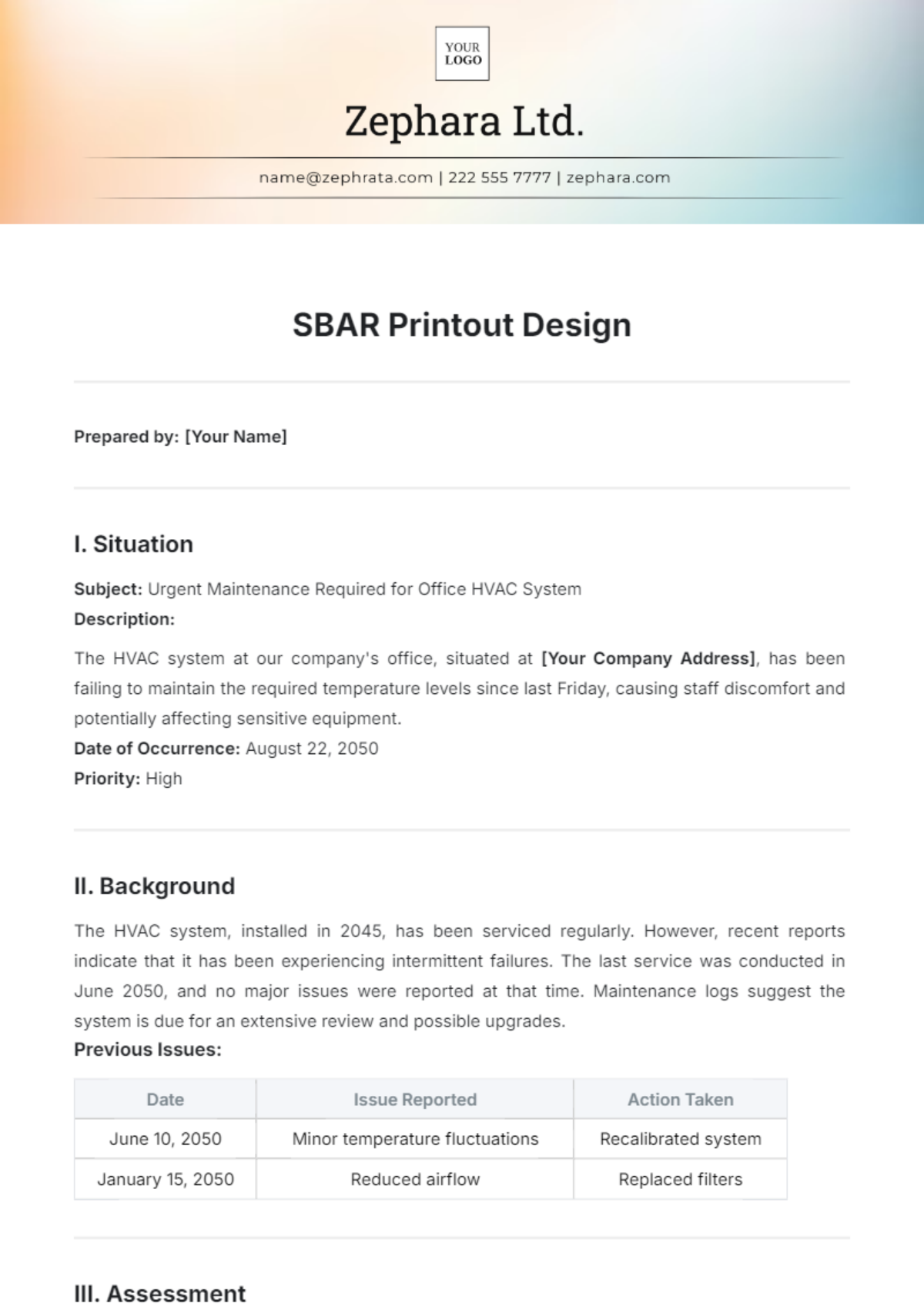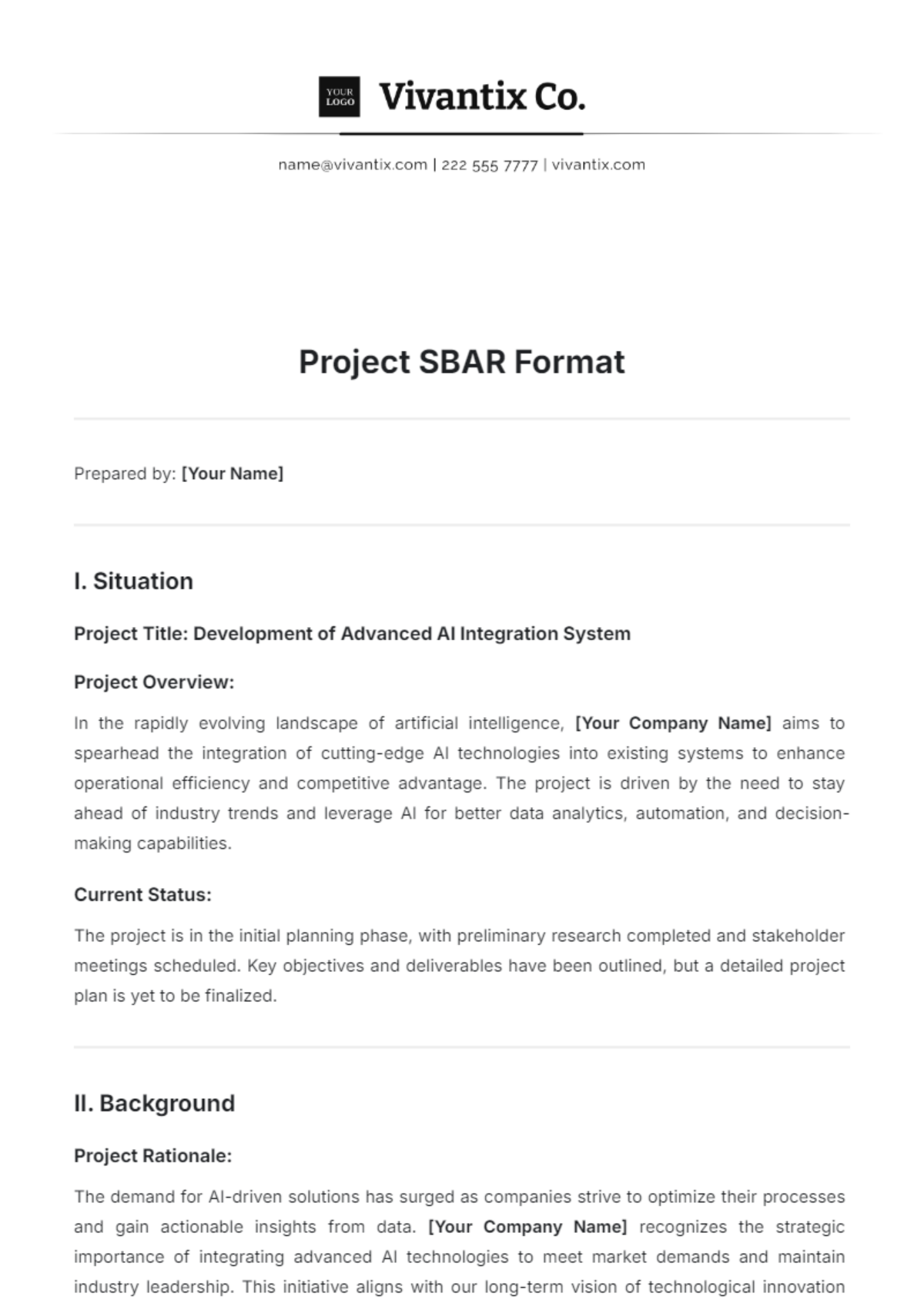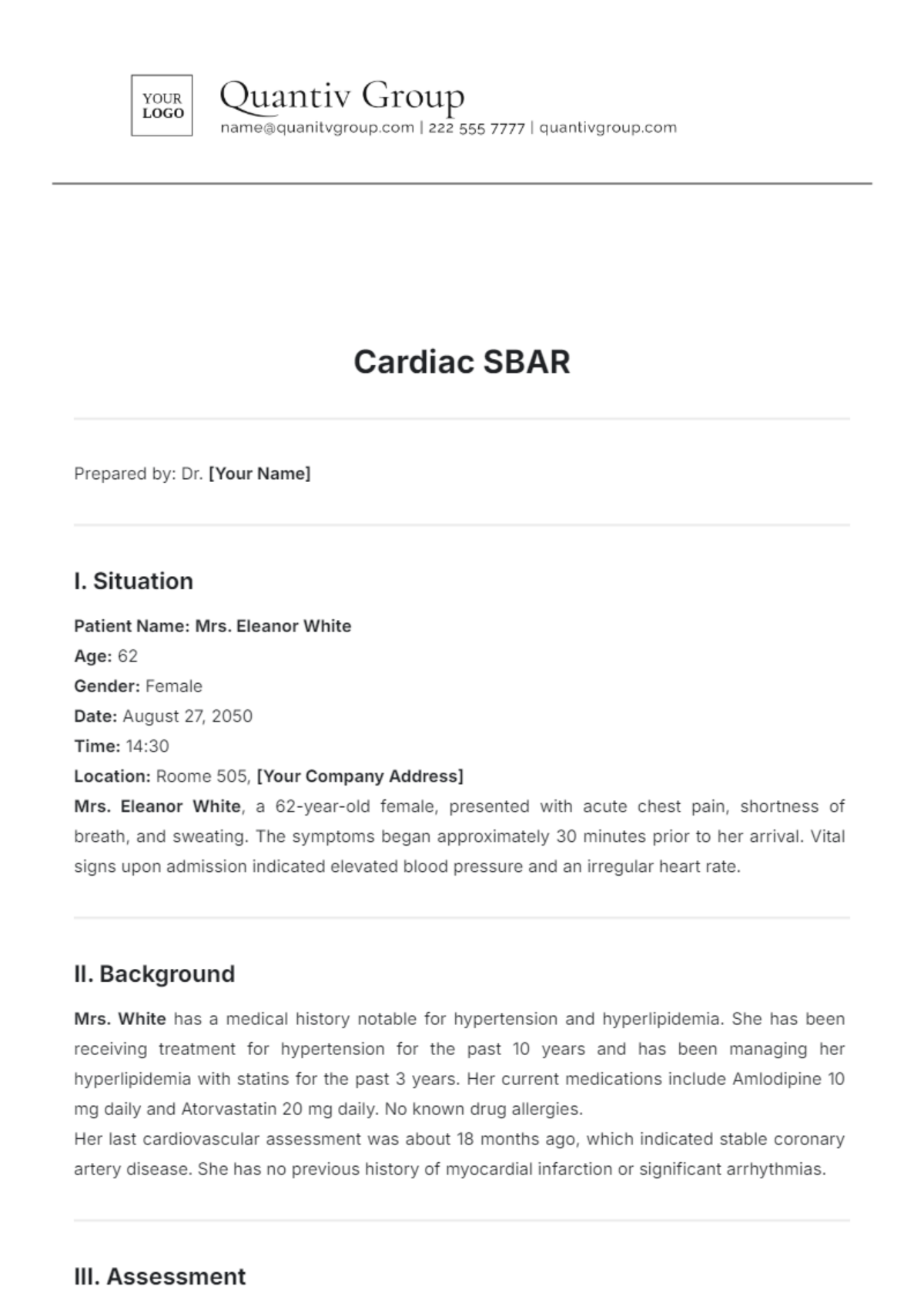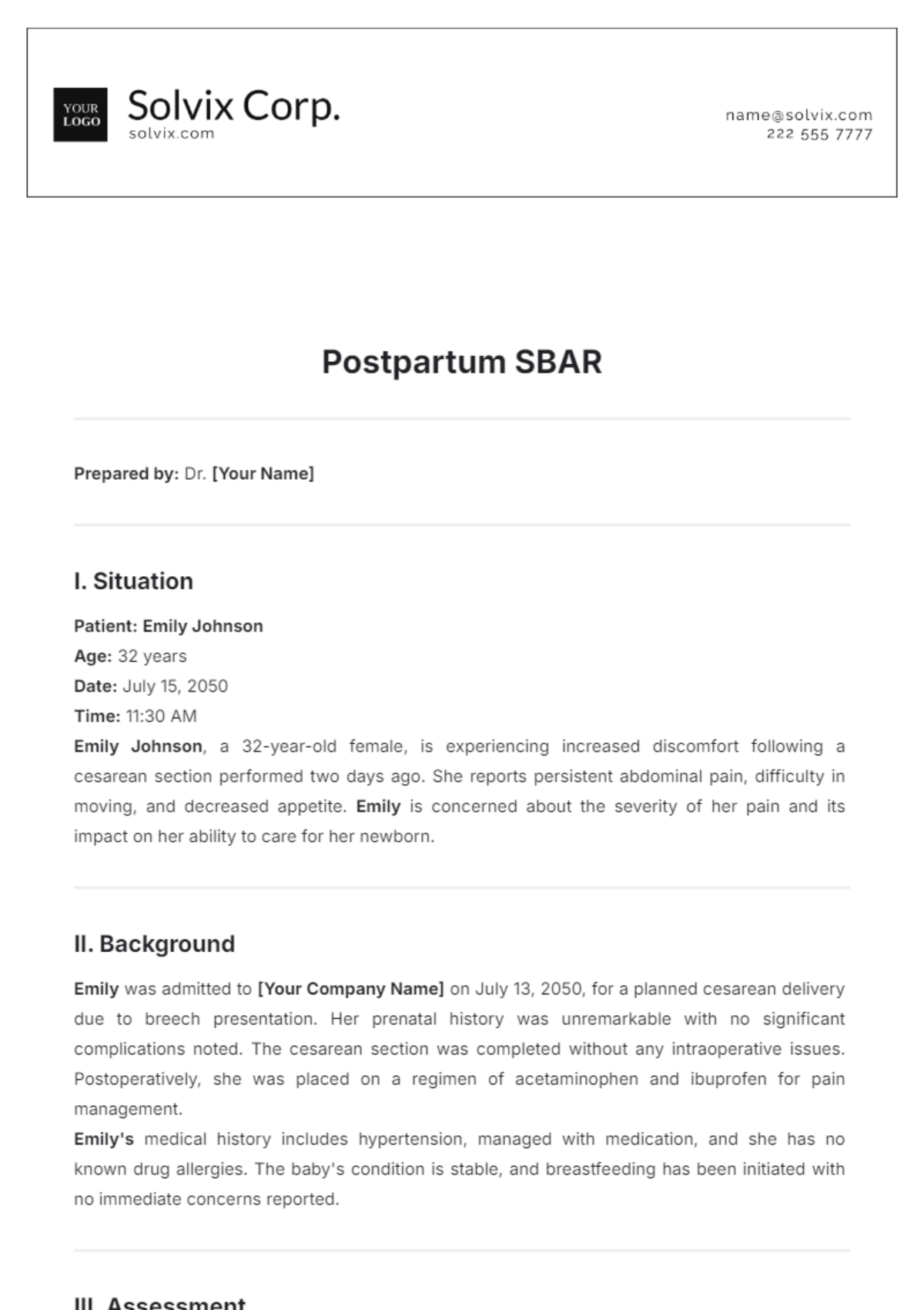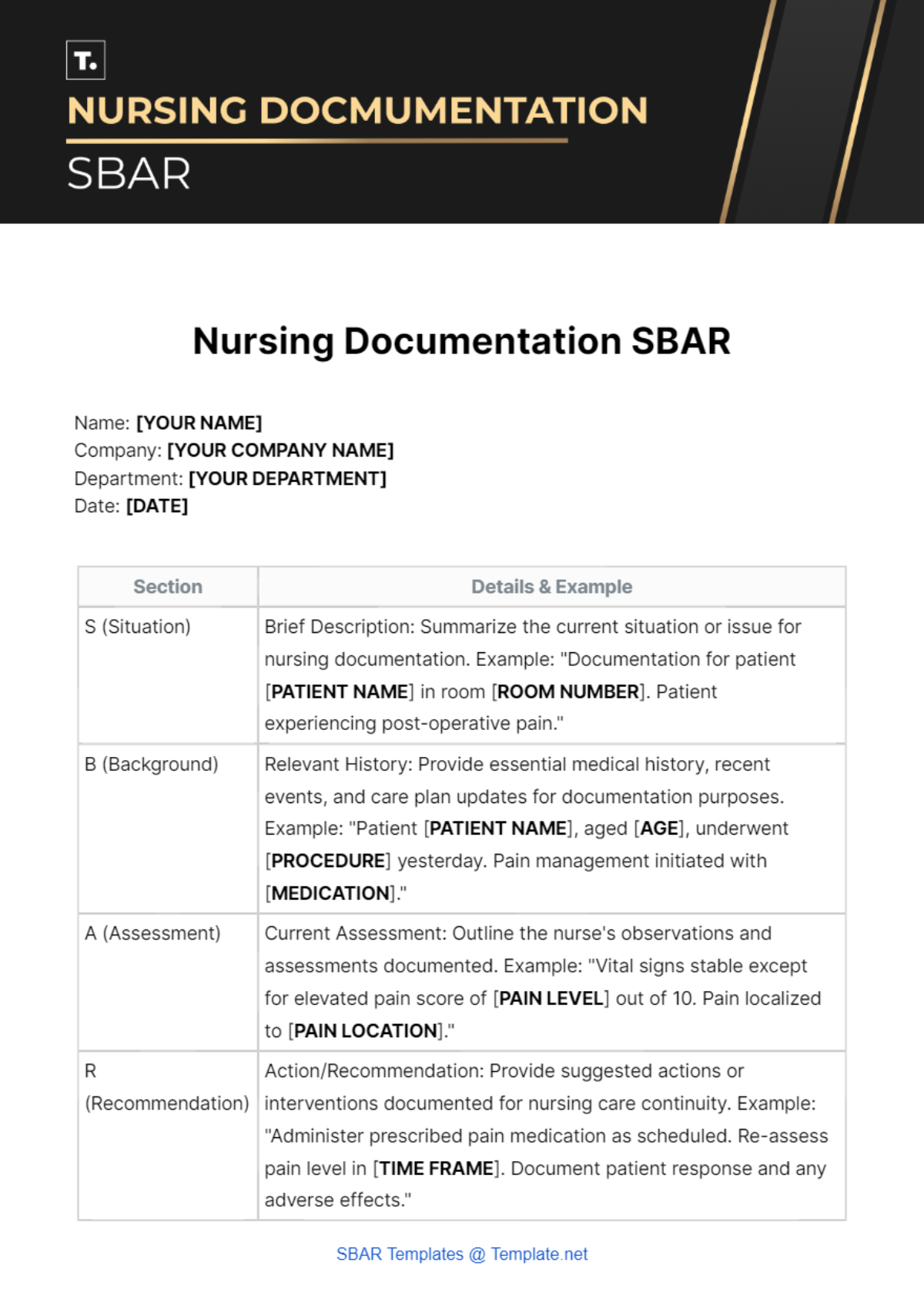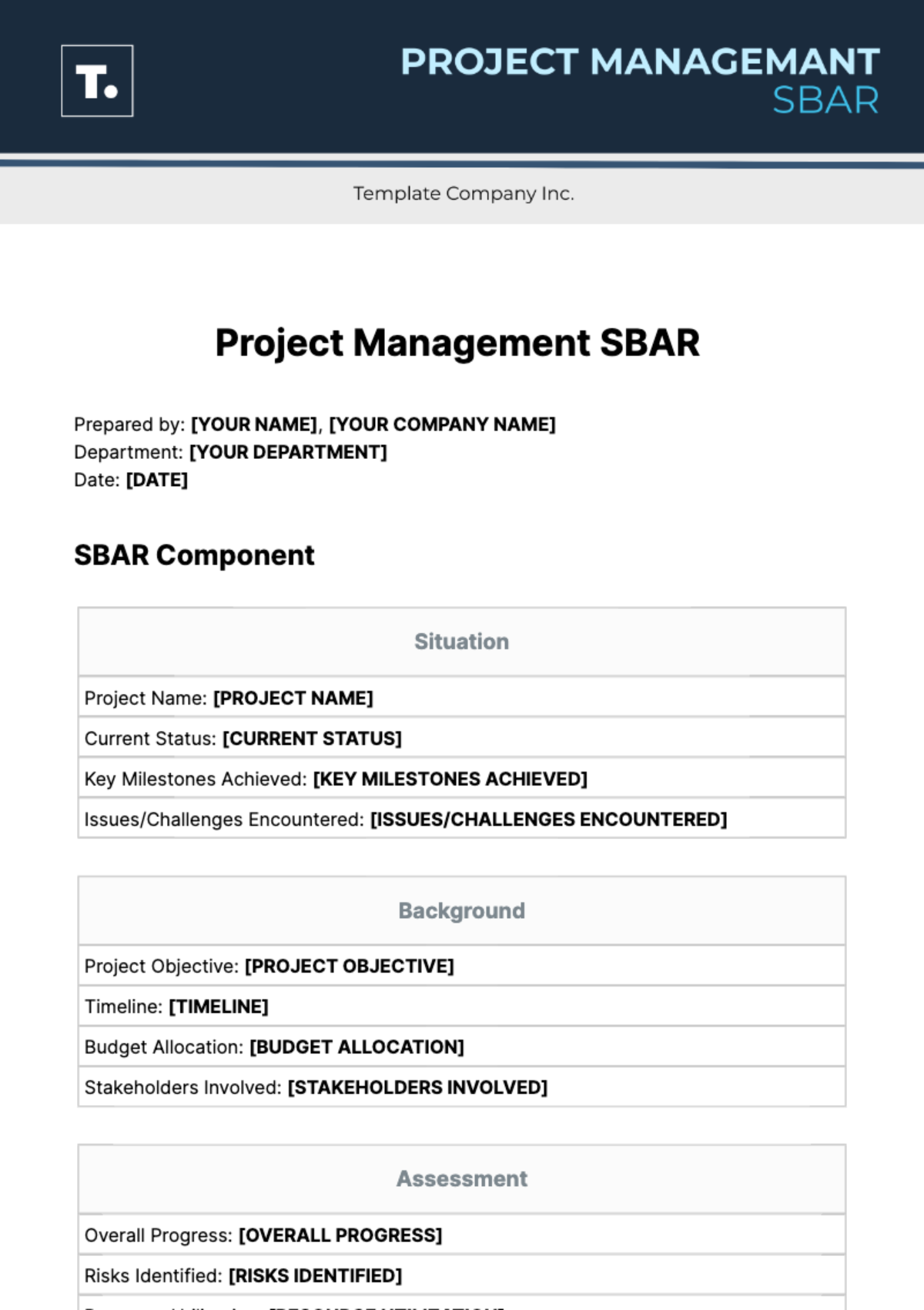SBAR for Nursing Students
Prepared by: [Your Name]
School/University: [Your Company Name]
I. Situation
In the year 2050, the healthcare landscape continues to evolve, presenting new challenges and opportunities. Nurses must adeptly navigate these changes to provide optimal patient care. This document details the SBAR (Situation, Background, Assessment, Recommendation) communication framework to aid nursing students in effectively conveying critical information.
II. Background
Understanding the historical and contextual factors influencing patient care is crucial for nursing practice. As healthcare technology advances, patient data and treatment protocols become increasingly complex. A comprehensive background provides a foundation for informed decision-making and communication.
Key Factors Influencing Patient Care in 2050
Factor | Description |
|---|---|
Technological Advances | Integration of AI and robotics in patient monitoring |
Patient Demographics | Increasing diversity and aging population |
Policy Changes | New healthcare regulations and reimbursement models |
Treatment Innovations | Advances in personalized medicine and telehealth services |
III. Assessment
A thorough assessment involves evaluating the patient’s current status and identifying any issues or changes. Accurate assessments ensure that interventions are tailored to individual needs.
Case Study: Patient Assessment
Patient Name: Olivia Carter
Age: 68
Diagnosis: Type 2 Diabetes Mellitus
Current Condition:
Elevated blood glucose levels
Increased episodes of dizziness
Recent changes in medication adherence
Assessment Findings:
Vital Signs: Stable but slightly elevated blood pressure
Lab Results: HbA1c levels above the target range
Patient Concerns: Expresses difficulty in managing diet and medication regimen
IV. Recommendation
Recommendations should be clear and actionable, guiding the next steps in patient care. Collaboration with the healthcare team and the patient is essential to developing and implementing effective strategies.
Recommended Actions:
Medication Review: Schedule a consultation with the endocrinologist to review and adjust the medication regimen.
Patient Education: Arrange for a diabetes management workshop to enhance the patient’s understanding of dietary and medication requirements.
Follow-Up: Set up regular follow-up appointments to monitor blood glucose levels and overall health status.
